Board games are played on a tabletop, often employ combinations of strategy, skill, and luck, and are a great way to pass the time with friends and loved ones.
Shadows of Brimstone: Swamps of Death is a fast-paced, fully cooperative, dungeon-crawl board game set in the Old West, with a heavy dose of unspeakable horror! Players create characters, taking on the role of a classic Western Hero Archetype, such as the Law Man, Gunslinger, or Saloon Girl. Forming an adventuring posse, the Heroes venture down into the dark mines, overrun with all manner of ancient demons and foul creatures from another world. With tactical gameplay, lots of dice, and a robust card-driven exploration system, no two games are ever the same as the heroes explore the mines finding new enemies to fight, new loot to collect, and new dangers to overcome.
Players can even find portals to other worlds, stepping through to continue their adventures on the other side!
In Swamps of Death, players will encounter portals to the otherworld Jargono, a humid swampland inhabited by sentient reptiles, vicious dinosaurs and a tribe of humanoids, cut off from return to their homeworld untold years after their own portal closed.
| Players | Min. Age | Time |
|---|---|---|
| 1 - 4 | 12 | 90 - 180m |
In the trick-taking card game The Crew: Mission Deep Sea, you and the other players work together to search for the lost continent of Mu. This new adventure takes your crew deep down into the abyss on a search for the fabled sunken land. How far you get depends entirely on how well you work together as a team. Card by card, trick by trick, your search party will discover the challenges that lie ahead and forge a path to Mu.
This new version of The Crew has the same innovative co-operative trick-taking mechanism as the highly lauded original game — but with some exciting new surprises! While communication between your crew members is severely limited by your submerged state, it is also critical to your success; finding the hidden land in the murky depths depends not only on winning tricks, but also on carefully negotiating the order in which they are won. If things don't go as planned, you might just be able to salvage the operation, but it will take near flawless execution and perhaps a little luck to finally reach Mu.
| Players | Min. Age | Time |
|---|---|---|
| 2 - 5 | 10 | 20m |
In this action-packed Dungeons & Dragons card game, you win by being the last adventurer standing.
Play as one of four brave, quirky characters—Barbarian, Paladin, Rogue, or Wizard—battling it out in a dungeon full of treasure! With magic missiles flinging, dual daggers slinging, and spiked shields dinging, it's up to you to prove your adventurer has the guts to bring home the glory!
| Players | Min. Age | Time |
|---|---|---|
| 2 - 4 | 8 | 10m |
Choose your dice cleverly in Ganz schön clever (German for "That's Pretty Clever") to enter them into the matching colored areas on your score sheet, putting together tricky chain-scoring opportunities, and racking up the points! The dice you don't use are as important as those you do, because every die with a lower value than the chosen one can be used by the other players, keeping everyone in the game at all times.
| Players | Min. Age | Time |
|---|---|---|
| 1 – 4 | 8 | 30m |
Wingspan is a competitive, medium-weight, card-driven, engine-building board game from Stonemaier Games. It's designed by Elizabeth Hargrave and features over 170 birds illustrated by Beth Sobel, Natalia Rojas, and Ana Maria Martinez.
You are bird enthusiasts—researchers, bird watchers, ornithologists, and collectors—seeking to discover and attract the best birds to your network of wildlife preserves. Each bird extends a chain of powerful combinations in one of your habitats (actions). These habitats focus on several key aspects of growth:
- Gain food tokens via custom dice in a birdfeeder dice tower
- Lay eggs using egg miniatures in a variety of colors
| Players | Min. Age | Time |
|---|---|---|
| 1 - 5 | 10 | 40-70m |
The catacombs of the skeletal dragon Umbrok Vessna are mysterious and dangerous. Portals transport you all around the dungeon depths. Wayshrines offer vast riches to intrepid explorers. Prisoners are counting on you to free them. Ghosts, once disturbed, may haunt you to death. Despite all that, it's time to leave the board behind with Clank! Catacombs, a standalone deck-building adventure.
Each trip into the catacombs is unique since you lay tiles to create the dungeon. You can play using only the all-new dungeon deck, or you can include cards from previous Clank! expansions.
Find your fortune (and escape the dragon!) in Clank! Catacombs.
| Players | Min. Age | Time |
|---|---|---|
| 2 – 4 | 13 | 45–90m |
Balduin, the house ghost, found an old camera in the castle cellar. Immediately he photographed everything that he loves to make disappear when he is haunting – including himself, of course. Unfortunately, the enchanted camera takes many photos in the wrong colors. Sometimes the green bottle is white, at other times it's blue. Looking at the photos, Balduin doesn't really remember any more what he wanted to make disappear next. Can you help him with his haunting and quickly name the right item, or even make it disappear by yourself? If you grab the right items quickly, you have a good chance of winning...
| Players | Min. Age | Time |
|---|---|---|
| 2 - 8 | 8 | 20m |
On an uninhabited island in uncharted seas, explorers have found traces of a great civilization. Now you will lead an expedition to explore the island, find lost artifacts, and face fearsome guardians, all in a quest to learn the island's secrets.
Lost Ruins of Arnak combines deck-building and worker placement in a game of exploration, resource management, and discovery. In addition to traditional deck-builder effects, cards can also be used to place workers, and new worker actions become available as players explore the island. Some of these actions require resources instead of workers, so building a solid resource base will be essential. You are limited to only one action per turn, so make your choice carefully... what action will benefit you most now? And what can you afford to do later... assuming someone else doesn't take the action first!?
| Players | Min. Age | Time |
|---|---|---|
| 1 - 4 | 12 | 30-120 |
There's hustle and bustle at Istanbul's grand bazaar as merchants and their assistants rush through the narrow alleys in their attempt to be more successful than their competitors. Everything must be well organized: wheelbarrows must be filled with goods at the warehouses, then swiftly transported by the assistants to various destinations. Your goal? Be the first merchant to collect a certain number of rubies.
In Istanbul, you lead a group of one merchant and four assistants through 16 locations in the bazaar. At each such location, you can carry out a specific action. The challenge, though, is that to take an action, you must move your merchant and an assistant there, then leave the assistant behind (to handle all the details while you focus on larger matters). If you want to use that assistant again later, your merchant must return to that location to pick him up. Thus, you must plan ahead carefully to avoid being left with no assistants and thus unable to do anything...
| Players | Min. Age | Time |
|---|---|---|
| 2 – 5 | 10 | 40–60m |
...a cross-country train adventure where players collect cards of various types of train cars that enable them to claim railway routes connecting cities in various countries around the world.
| Players | Min. Age | Time |
|---|---|---|
| 2 - 5 | 8 | 30-60m |
Can you save humanity in this cooperative game where deadly viruses are spreading across the globe? Together, you will treat diseases, share knowledge, and fly all over the world to prevent outbreaks and slow down the epidemic.
| Players | Min. Age | Time |
|---|---|---|
| 2 - 4 | 8 | 45m |
...players take on the roles of brave adventurers who must throw caution to the wind and survive both blistering heat and blustering sand in order to recover a legendary flying machine buried under an ancient desert city.
| Players | Min. Age | Time |
|---|---|---|
| 2 - 5 | 10 | 45m |
Within the charming valley of Everdell, beneath the boughs of towering trees, among meandering streams and mossy hollows, a civilization of forest critters is thriving and expanding. From Everfrost to Bellsong, many a year have come and gone, but the time has come for new territories to be settled and new cities established. You will be the leader of a group of critters intent on just such a task. There are buildings to construct, lively characters to meet, events to host—you have a busy year ahead of yourself. Will the sun shine brightest on your city before the winter moon rises?
Everdell is a game of dynamic tableau building and worker placement.
On their turn a player can take one of three actions:
| Players | Min. Age | Time |
|---|---|---|
| 1 - 4 | 13 | 40-80m |
Soar to dizzying heights in the electrifying cooperative adventure. Work as a team to explore a mysterious platform that floats at the center of a savage storm. Connect a circuit of cables to launch a secret rocket — all before you are struck by lightning or blown off to the depths below. It's a high-wire act that will test your team's capacity for courage and cooperation. One false step and you all could be grounded.This latest installment in the Forbidden that game series takes you to new heights with several novel challenges, including collectively planning a terrain using only limited information and constructing a real electrical circuit.
| Players | Min. Age | Time |
|---|---|---|
| 2 - 5 | 10 | 60m |
Set in a world of Lovecraftian horror, cooperatively investigate a museum full of strange artefacts and stranger demons. Collect eldritch symbols, "elder signs", to close the portals and prevent the creatures from invading our world. Collect enough before the time is up or suffer the wrath of the Ancient Ones.
| Players | Min. Age | Time |
|---|---|---|
| 1 - 8 | 13 | 90m |
Players all begin as allies exploring a haunted house filled with dangers, traps, items, and omens.
As players journey to new parts of the mansion, room tiles are chosen at random and placed on the game board.
Eventually the "haunt" begins, one player usually "betrays" the others and takes the side of the ghosts, monsters, or other enemies, while the remaining players collaborate to defeat them.
| Players | Min. Age | Time |
|---|---|---|
| 3 - 6 | 13 | 60m |
Crokinole is a traditional dexterity game.
Crokinole is played on a circular wooden board, with wooden circular disks as playing pieces. Players take turns shooting disks across the circular wooden board by flicking the disks with their fingers. Players try to land their disks in scoring regions on the board, with the highest scoring area the recessed hole in the very center of the board. Each round, each player/side alternately shoots a set number of disks (usually 12 or 8), shooting one disk each turn.
As a traditional game, there are often many variations played, but the following method is based on the National Crokinole Association's rules which also govern the World Crokinole Championship.
| Players | Min. Age | Time |
|---|---|---|
| 2 - 4 | 8 | 30m |
As an architect in Welcome To..., you want to build the best new town in the United States of the 1950s by adding resources to a pool, hiring employees, and more.
Welcome To... plays like a roll-and-write dice game in which you mark results on a score-sheet...but without dice. Instead you flip cards from three piles to make three different action sets with both a house number and a corresponding action from which everyone chooses one. You use the number to fill in a house on your street in numerical order. Then you take the action to increase the point value of estates you build or score points at the end for building parks and pools. Players also have the option of taking actions to alter or duplicate their house numbers. And everyone is racing to be the first to complete public goals. There's lots to do and many paths to becoming the best suburban architect in !
| Players | Min. Age | Time |
|---|---|---|
| 1 – 100 | 10 | 25m |
Using a deck of cards illustrated with dreamlike images, players select cards that match a title suggested by the "storyteller", and attempt to guess which card the "storyteller" selected.
| Players | Min. Age | Time |
|---|---|---|
| 3 - 8 | 8 | 30m |
Tall, Small, Big, Thin, Heavy, Light, Round, Square, Yellow, Red, Blue and Green. Pick the symbol that matches the picture best! Don't worry, there is no wrong answer, but you only get a point if the majority of players has picked the same symbol as you!
| Players | Min. Age | Time |
|---|---|---|
| 2 - 6 | 8 | 10-20m |
Build a Unicorn Army. Betray your friends. Unicorns are your friends now.
| Players | Min. Age | Time |
|---|---|---|
| 2 - 8 | 14 | 30-45m |
Cascadia is a puzzly tile-laying and token-drafting game featuring the habitats and wildlife of the Pacific Northwest.
In the game, you take turns building out your own terrain area and populating it with wildlife. You start with three hexagonal habitat tiles (with the five types of habitat in the game), and on a turn you choose a new habitat tile that's paired with a wildlife token, then place that tile next to your other ones and place the wildlife token on an appropriate habitat. (Each tile depicts 1-3 types of wildlife from the five types in the game, and you can place at most one tile on a habitat.) Four tiles are on display, with each tile being paired at random with a wildlife token, so you must make the best of what's available — unless you have a nature token to spend so that you can pick your choice of each item.
| Players | Min. Age | Time |
|---|---|---|
| 1 - 4 | 10 | 30-45m |
The master of Ravenloft is having guests for dinner – and you are invited!
Evil lurks in the towers and dungeons of Castle Ravenloft, and only heroes of exceptional bravery can survive the horrors within.
Designed for 1-5 players, this boardgame features multiple scenarios, challenging quests, and cooperative gameplay.
| Players | Min. Age | Time |
|---|---|---|
| 1 - 5 | 13 | 60m |
After seeking shelter in an abandoned cabin and spending the night, you and your friends realize that someone has secured the door with a combination lock. The only way to escape your predicament is to work as a team, crack codes and solve various puzzles in order to deduct the combination that leads to freedom.
| Players | Min. Age | Time |
|---|---|---|
| 1 - 6 | 12 | 60-120m |
The race is woven around a storyline about finding King Kandy, the lost king of Candy Land...game requires no reading and minimal counting skills, making it suitable for young children...players are never required to make choices, just follow directions.
| Players | Min. Age | Time |
|---|---|---|
| 2 - 4 | 3 | 15-21m |
Also known as Snakes and Ladders, Chutes and Ladders is simple and easy to play, even for those who can't read. Going up the ladders and down the chutes, a child will learn (by the pictures) the rewards of good deeds and the consequences of naughty ones.
| Players | Min. Age | Time |
|---|---|---|
| 2 - 4 | 4 | 15-30m |
Slide, collide and score to win the game of Sorry! Draw cards to see how far you get to move one of your pawns on the board. If you land on a Slide you can zip to the end and bump your opponents' pawns or your own!
| Players | Min. Age | Time |
|---|---|---|
| 2 - 4 | 6 | 30m |
Klask is a board game that has a ball field shape with two deep holes functioning as goals in each end of the field. The purpose of the game is to push the small ball around on the field with your magnet/gaming piece, shoot the ball past the obstacles and your opponent and into the goal hole.
| Players | Min. Age | Time |
|---|---|---|
| 2 | 8 | 10m |
Battleball is a football board game but with teams made of players with physical and mechanical enhancements - which has made the sport more intense and more deadly. Plan a strategy and do your best to score two touchdowns without having all of your players be destroyed!
| Players | Min. Age | Time |
|---|---|---|
| 2 | 8 | 45m |
Based on simple and intuitive hand management, Heat: Pedal to the Metal puts players in the driver's seat of intense car races, jockeying for position to cross the finish line first, while managing their car's speed if they don't want to overheat. Selecting the right upgrades for their car will help them hug the curves and keep their engine cool enough to maintain top speeds. Ultimately, their driving skills will be the key to victory!
Drivers can compete in a single race or use the "Championship System" to play a whole season in one game night, customizing their car before each race to claim the top spot of the podium. They have to be careful as the weather, road conditions, and events will change every race to spice up their championship. Players can also enjoy a solo mode with the Legends Module or add automated drivers as additional opponents in multiplayer games.
| Players | Min. Age | Time |
|---|---|---|
| 1 - 6 | 10 | 30-60m |
Pachisi, the national game of India, dates back to 4 AD and remains popular today. Parcheesi is the westernized version. Parcheesi is typically played with two dice, four pieces per player and a gameboard with a track around the outside, four corner spaces and four home paths leading to a central end space. Moving all four pieces to the home position wins the game.
| Players | Min. Age | Time |
|---|---|---|
| 2 - 4 | 8 | 30-60m |
In Tokaido, each player is a traveler crossing the "East sea road", one of the most magnificent roads of Japan. While traveling, you will meet people, taste fine meals, collect beautiful items, discover great panoramas, and visit temples and wild places but at the end of the day, when everyone has arrived at the end of the road you'll have to be the most initiated traveler – which means that you'll have to be the one who discovered the most interesting and varied things. All of the actions in Tokaido are very simple, and combined with a unique graphic design, Tokaido offers players a peaceful zen mood in its play.
| Players | Min. Age | Time |
|---|---|---|
| 2 - 5 | 8 | 45m |
Santorini is an accessible strategy game, simple enough for an elementary school classroom while aiming to provide gameplay depth and content for hardcore gamers to explore, The rules are simple. Each turn consists of 2 steps. those are Move (move one of your builders into a neighboring space) and Build (construct a building level adjacent to the builder you move). If either of your builders reaches the third level, you win.
| Players | Min. Age | Time |
|---|---|---|
| 2 - 4 | 8 | 20m |
Sushi Draft is a card game that looks good enough to eat! Sushi Draft includes a deck of 32 sushi cards (8 ikura, 7 ebi, 6 maguro, 5 tamago, 4 kappa and 2 "wild" triples) and 18 point tokens (three each for the five types of sushi and three for dessert); the point tokens range in value from 1-5, with the more plentiful sushi dishes being worth more points. Over three rounds, players draft plates of sushi and collect sushi points, which are drawn randomly. The player with the most diverse menu gets dessert. Players tally their points, and whoever has the highest score wins. Sushi Draft is quick to learn and fun for the whole family, and is the perfect introduction to the classic genre of pick-and-pass/card-drafting games!
| Players | Min. Age | Time |
|---|---|---|
| 3 - 5 | 8 | 15m |
PARKS is a celebration of the US National Parks featuring illustrious art from Fifty-Nine Parks. In PARKS, players will take on the role of two hikers who will trek trails to see sites, observe wildlife, take photos, and visit national parks over the course of the game. They will take actions and collect memories of the places your hikers visit. These memories are represented by various resource tokens like mountains and forests. Collecting these memories in sets will allow players to trade them in to visit a National Park at the end of each hike. Each trail, represented by tiles, represents a different season, and as each season passes, the trails change and grow steadily longer. Each turn, players send one of their hikers down the trail. While on the trail, hikers will see beautiful sites and perform an action when they arrive. When a hiker reaches the end of the trail, they can spend tokens they have received to visit Parks and earn points. Your goal is to have the most points from your Parks, photos, and personal bonus at the end of the year.
| Players | Min. Age | Time |
|---|---|---|
| 1 - 5 | 10 | 40 -70m |
In The Quest for El Dorado, players take the roles of expedition leaders who have embarked on a search for the legendary land of gold in the dense jungles of South America. Each player assembles and equips their own team, hiring various helpers from the scout to the scientist to the aborigine. All of them have one goal in mind: Reaching the golden border first and winning all of the riches for themselves. Whoever chooses the best tactics will be rewarded!
| Players | Min. Age | Time |
|---|---|---|
| 2 - 4 | 10 | 30-60m |
In The Quacks of Quedlinburg, players are charlatans — or quack doctors — each making their own secret brew by adding ingredients one at a time. Take care with what you add, though, for a pinch too much of this or that will spoil the whole mixture!
Each player has their own bag of ingredient chips. During each round, they simultaneously draw chips from their bags and add them to their pots. The higher the face value of the drawn chip, the further it is placed in the pot's swirling pattern, increasing how much the potion will be worth. Push your luck as far as you can, but if you add too many cherry bombs, your pot will explode!
At the end of each round, players gain victory points and coins to spend on new ingredients, depending on how well they managed to fill up their pots. But players whose pots have exploded must choose points or coins — not both! The player with the most victory points at the end of nine rounds wins the game.
| Players | Min. Age | Time |
|---|---|---|
| 2 - 4 | 10 | 45m |
In Kingdomino, you are playing as a lord who is seeking new lands to expand your kingdom. You must explore all the lands, including wheat fields, lakes, and mountains, to spot the best plots, while competing with other lords to acquire them first. This game is like Dominoes. It uses tiles with two sections. Each turn, player will select a new domino to connect to their existing kingdom, making sure at least one of its sides connects to a matching terrain type already in play. The order of who picks first depends on which tile was previously chosen, with better tiles forcing players to pick later in the next round. The game ends when each player has completed a 5x5 grid and then points are counted based on number of connecting tiles and crowns symbol.
| Players | Min. Age | Time |
|---|---|---|
| 2 - 4 | 8 | 15m |
SCOUT is a ladder-climbing game in which cards have two potential values, players may not rearrange their hand of cards, and players may pass their turn to take a card from the current high set of cards into their hand.
More specifically, cards are dual-indexed, with different values on each half of the card, with the 45 cards having all possible combinations of the numbers 1-10. During set-up, whoever is shuffling the cards should randomize both the order of the cards in the deck and their orientation. Once each player has been dealt their entire hand of cards, they pick up that hand without rearranging any of the cards; if they wish, they can rotate their entire hand of cards in order to use the values on the other end of each card, but again they cannot rearrange the order of cards in their hand.
| Players | Min. Age | Time |
|---|---|---|
| 2 - 5 | 9 | 15m |
Players take turns rolling the dice — which feature six unique symbols — then race to grab the tile with the matching pattern before anyone else. Whoever grabs six tiles first wins!
| Players | Min. Age | Time |
|---|---|---|
| 2 - 6 | 5 | 5-15m |
Confront your rival guild in a race for victory. Take Gem and Pearl tokens from the common board, then purchase cards, gather bonuses, royal favours, and prestige.
Discover new twists and strategic opportunities derived from Splendor, the original best-selling game. Acquire cards with impressive powers, take advantage of special Privileges, and fight over scarce access to Pearls.
Splendor Duel is a two-player only standalone game based on Splendor that retains some of the main gameplay mechanisms of that design, while being a bit more complex, dynamic, interactive, rich, tense, and mean.
The game features a main board shared by both opponents, card powers, and three victory conditions.
| Players | Min. Age | Time |
|---|---|---|
| 2 | 10 | 30-60m |
Each player builds a stained glass window by building up a grid of dice on their player board. Each board has some restrictions on which color or shade (value) of die can be placed there. Dice of the same shade or color may never be placed next to each other. Dice are drafted in player order, with the start player rotating each round, snaking back around after the last player drafts two dice. Scoring is variable per game based on achieving various patterns and varieties of placement...as well as bonus points for dark shades of a particular hidden goal color.
| Players | Min. Age | Time |
|---|---|---|
| 1 - 4 | 10 | 30-45m |
Introduced by the Moors, azulejos (originally white and blue ceramic tiles) were fully embraced by the Portuguese when their king Manuel I, on a visit to the Alhambra palace in Southern Spain, was mesmerized by the stunning beauty of the Moorish decorative tiles. The king, awestruck by the interior beauty of the Alhambra, immediately ordered that his own palace in Portugal be decorated with similar wall tiles. As a tile-laying artist, you have been challenged to embellish the walls of the Royal Palace of Evora.
In the game Azul, players take turns drafting colored tiles from suppliers to their player board. Later in the round, players score points based on how they've placed their tiles to decorate the palace. Extra points are scored for specific patterns and completing sets; wasted supplies harm the player's score. The player with the most points at the end of the game wins.
| Players | Min. Age | Time |
|---|---|---|
| 2 - 4 | 8 | 30-45m |
At the turn of the 16th Century, King Manuel I commissioned Portugal's greatest artisans to construct grandiose buildings. After completing the Palaces of Evora and Sintra, the king sought to build a summer pavilion to honor the most famous members of the royal family. This construction was intended for the most talented artisans — whose skills meet the splendor that the royal family deserves. Sadly, King Manuel I died before construction ever began.
In Azul: Summer Pavilion, players return to Portugal to accomplish the task that never began. As a master artisan, you must use the finest materials to create the summer pavilion while carefully avoiding wasting supplies. Only the best will rise to the challenge to honor the Portuguese royal family.
| Players | Min. Age | Time |
|---|---|---|
| 2 – 4 | 8 | 30–45m |
In Patchwork, two players compete to build the most aesthetic (and high-scoring) patchwork quilt on a personal 9x9 game board. To start play, lay out all of the patches at random in a circle and place a marker directly clockwise of the 2-1 patch. Each player takes five buttons — the currency/points in the game — and someone is chosen as the start player.
On a turn, a player either purchases one of the three patches standing clockwise of the spool or passes. To purchase a patch, you pay the cost in buttons shown on the patch, move the spool to that patch's location in the circle, add the patch to your game board, then advance your time token on the time track a number of spaces equal to the time shown on the patch. You're free to place the patch anywhere on your board that doesn't overlap other patches, but you probably want to fit things together as tightly as possible. If your time token is behind or on top of the other player's time token, then you take another turn; otherwise the opponent now goes. Instead of purchasing a patch, you can choose to pass; to do this, you move your time token to the space immediately in front of the opponent's time token, then take one button from the bank for each space you moved.
| Players | Min. Age | Time |
|---|---|---|
| 2 | 8 | 15-30m |
Queen Gimnax has ordered the reclamation of the northern lands. As a cartographer in her service, you are sent to map this territory, claiming it for the Kingdom of Nalos. Through official edicts, the queen announces which lands she prizes most, and you will increase your reputation by meeting her demands. But you are not alone in this wilderness. The Dragul contest your claims with their outposts, so you must draw your lines carefully to reduce their influence. Reclaim the greatest share of the queen’s desired lands and you will be declared the greatest cartographer in the kingdom.
In Cartographers: A Roll Player Tale, players compete to earn the most reputation stars by the time four seasons have passed. Each season, players draw on their map sheets and earn reputation by carrying out the queen's edicts before the season is over. The player with the most reputation stars at the end of winter wins!
| Players | Min. Age | Time |
|---|---|---|
| 1 - 100 | 10 | 30-45m |
This is an evolution of the Westwar series first introduced by Vanguard Games with Pas de Calais. Other games using a similar system are To the Far Shore and the Italian Campaign series (Sicily, Salerno, Anzio and Med War).
Tide of Fortune features the September-October Allied campaign in northern Belgium and in the Low countries, culminating with the Arnhem operation.
Scale is 1-2 days/turn (variable because of the Impulse system), 3 km/hex. Units are regiments/brigades.
The game has 2 22"x34" maps, 300 counters.
The heart of the system is the Operations phase where players alternate activating formations (divisions) which execute Orders (Assault, Advance, Maneuver etc.).
Players bid for Initiative and there are possibilities for the Reaction player to foil the initiative player's moves by having units react and do spoiling attacks.
Losses can be applied to the HQ of a formation, not only directly to units.
Low counter density, high maneuver. Medium-high complexity.
| Players | Min. Age | Time |
|---|---|---|
| 1 -2 | 12 | 360m |
Talisman takes you on a journey through magical lands, as you endeavor to reclaim the Crown of Command. Each turn will see your hero advancing, battling, gaining knowledge and power necessary to defeat the guardians lurking between the Portal of Power and the Valley of Fire.
| Players | Min. Age | Time |
|---|---|---|
| 2 -6 | 9 | 90-240m |
You've built housing for humanity in neighborhoods and New Las Vegas. Now you need to save humanity through space colonization...
Welcome to the Moon uses the same flip-and-write game mechanisms as the earlier title Welcome To..., but now you can play in a campaign across eight adventure sheets. On a turn, you flip cards from three stacks to create three different combinations of a starship number and a corresponding action, then all players choose one of these three combinations. You use the number to fill a space in a zone on your adventure sheet in numerical order, and everyone is racing to be the first to complete common missions.
The eight adventure sheets feature very different mechanisms from the classic concept, and when you play in campaign mode, you'll make choices that change the next adventure, which means that each campaign will differ from the previous one.
| Players | Min. Age | Time |
|---|---|---|
| 1 - 6 | 10 | 25-30m |
In this third expansion to Wingspan, we welcome new species to our habitats by exploring the vibrant, intriguing, and magnificent birds of Asia. These birds were chosen from the over 2,800 species that live in Asia. Wingspan Asia is several different things: A stand-alone game for 1 player or 2 players (Duet mode that can be used with any bird/bonus cards), a card expansion to the original Wingspan (any bird/bonus cards across any Wingspan game or expansion can be combined), and a 6-7 player expansion via the new Flock mode (for which the player components from the core game are necessary). —description from the publisher
| Players | Min. Age | Time |
|---|---|---|
| 1 - 2 | 10 | 40-70m |
The Witcher: Old World immerses you in the legendary universe of The Witcher franchise. In the time when monsters roamed the Continent, the well-trained Witchers were in high demand. Competing schools prepared them for perilous adventures and helping those in trouble in exchange for coins. In this competitive board game, 2-5 players embark on quests, make moral choices, fight monsters, and sometimes brawl with other witchers to defend their school's honor. Players construct unique decks with attacks, dodges, and witcher magic called "signs" to achieve powerful combos. Earn money, obtain items, and train skills through quests, battles or even dice poker.
| Players | Min. Age | Time |
|---|---|---|
| 1 -5 | 14 | 90-150m |
The Isle of Cats is a competitive, medium-weight, card-drafting, polyomino cat-placement board game for 1-4 players (6 with expansions).
In the game, you are citizens of Squalls End on a rescue mission to The Isle of Cats and must rescue as many cats as possible before the evil Lord Vesh arrives. Each cat is represented by a unique tile and belongs to a family, you must find a way to make them all fit on your boat while keeping families together. You will also need to manage resources as you:
- Explore the island (by drafting cards)
- Rescue cats
- Find treasures
- Befriend Oshax
| Players | Min. Age | Time |
|---|---|---|
| 1 - 4 | 8 | 60-90m |
There are four pop-up board games in this book. The games are, Space Escape, Pirate Treasure, Mummy Chase, & Save the Princess. Each game has a storage pocket to store the stand-up people. There is also a fold out spinner, that you use to move.
| Players | Min. Age | Time |
|---|---|---|
| 2 - 4 | 10 | 30m |
"Life is Battle; Battle is Glory; Glory is ALL" In Blood Rage, each player controls their own Viking clan’s warriors, leader, and ship. Ragnarök has come, and it’s the end of the world! It’s the Vikings’ last chance to go down in a blaze of glory and secure their place in Valhalla at Odin’s side! For a Viking there are many pathways to glory. You can invade and pillage the land for its rewards, crush your opponents in epic battles, fulfill quests, increase your clan's stats, or even die gloriously either in battle or from Ragnarök, the ultimate inescapable doom. Most player strategies are guided by the cards drafted at the beginning of each of the three game rounds (or Ages). These “Gods’ Gifts” grant you numerous boons for your clan including: increased Viking strength and devious battle strategies, upgrades to your clan, or even the aid of legendary creatures from Norse mythology. They may also include various quests, from dominating specific provinces, to having lots of your Vikings sent to Valhalla. Most of these cards are aligned with one of the Norse gods, hinting at the kind of strategy they support. For example, Thor gives more glory for victory in battle, Heimdall grants you foresight and surprises, Tyr strengthens you in battle, while the trickster Loki actually rewards you for losing battles, or punishes the winner.
| Players | Min. Age | Time |
|---|---|---|
| 2–4 | 14 | 60–90 Min |
It is one of the oldest known board games. It is a two player game where each player has fifteen pieces (checkers) which move between twenty-four triangles (points) according to the roll of two dice. The objective of the game is to be first to bear off, i.e. move all fifteen checkers off the board.
| Players | Min. Age | Time |
|---|---|---|
| 2 | 5 | 5-60m |
The objective of Tak is to be the first to connect any two opposite edges of the board with their pieces, called "stones", creating a road. To this end, players will take turns attacking and capturing their opponent's pieces while supporting their own.
| Players | Min. Age | Time |
|---|---|---|
| 2 | 5 | 30m |
In Puerto Rico, players assume the roles of colonial governors on the island of Puerto Rico. The aim of the game is to amass victory points by shipping goods to Europe or by constructing buildings. Each player uses a separate small board with spaces for city buildings, plantations, and resources. Shared between the players are three ships, a trading house, and a supply of resources and doubloons. The resource cycle of the game is that players grow crops which they exchange for points or doubloons. Doubloons can then be used to buy buildings, which allow players to produce more crops or give them other abilities. Buildings and plantations do not work unless they are manned by colonists.
| Players | Min. Age | Time |
|---|---|---|
| 3–5 | 12 | 90–150 Min |
You are the leader of one of the 7 great cities of the Ancient World. Gather resources, develop commercial routes, and affirm your military supremacy. Build your city and erect an architectural wonder which will transcend future times.
| Players | Min. Age | Time |
|---|---|---|
| 3 - 7 | 10 | 45m |
The great 7 Wonders concepts adapted especially for two players. The feel is very '7 Wonders' with a few refinements which many will with made it to the main game such as the reworked military and science victories as well as new commerce dynamics. Playing a game always leaves me wanting to play again.
| Players | Min. Age | Time |
|---|---|---|
| 2 | 10 | 30m |
This age of art and capitalism has created a need for a new occupation - The Gallerist. Combining the elements of an Art dealer, museum curator, and Artists’ manager, you are about to take on that job! You will promote and nurture Artists; buy, display, and sell their Art; and build and exert your international reputation. As a result, you will achieve the respect needed to draw visitors to your Gallery from all over the world. There's a lot of work to be done, but don't worry, you can hire assistants to help you achieve your goals. Build your fortune by running the most lucrative Gallery and secure your reputation as a world-class Gallerist! Maximize your money and thus win the game by:
| Players | Min. Age | Time |
|---|---|---|
| 1–4 | 13 | 60–150 Min |
In the dystopic 1930s, the industrial revolution pushed the exploitation of fossil-based resources to the limit, and now the only thing powerful enough to quench the thirst for power of the massive machines and of the unstoppable engineering progress is the unlimited hydroelectric energy provided by the rivers. Barrage is a resource management strategic game in which players compete to build their majestic dams, raise them to increase their storing capacity, and deliver all the potential power through pressure tunnels connected to the energy turbines of their powerhouses. Each player represents one of the four international companies who are gathering machinery, innovative patents and brilliant engineers to claim the best locations to collect and exploit the water of a contested Alpine region crossed by rivers.
| Players | Min. Age | Time |
|---|---|---|
| 1–4 | 14 | 60–120 Min |
Antike Duellum – previewed at Spiel 2011 under the name Casus Belli – is a two-player strategy game based on modified rules from Mac Gerdts' Antike. The game includes two scenarios: Punic Wars (Rome vs. Carthago) on one side of the board, and Persian Wars (Greeks vs. Persians) on the other. The goal of the game is to be the first to gain nine ancient personages (Kings, Scholars, Generals, Citizens, Navigators).
| Players | Min. Age | Time |
|---|---|---|
| 2 | 13 | 75m |
Too Many Bones comes loaded for bear by breaking into a new genre: the dice-builder RPG. This game takes everything you think you know about dice-rolling and turns it on its head. Dripping with strategy, this fantasy-based RPG puts you in the skin of a new race and takes you on an adventure to the northern territories to root out and defeat growing enemy forces and of course the infamous "baddie" responsible. Team up or go it alone in a 1-4 player Coop or Solo play campaign. With over 100+ unique skill dice and 4-7 classes to choose from, every battle is its own mini challenge to figure out. Your adventure will consist of 8-12 battles before you reach your final destination and face off against one of a number of possible kingpins in order to win. Along the way, you will be faced with storyline decisions that will quickly have you weighing risk/reward, odds, and logic - with dice woven into every aspect! Your party will also be faced with other decisions: when to rest, when to explore, or even which fights to pursue! The Encounter cards offer fun plot twists and some comic relief, all while setting the stage for your next battle.
| Players | Min. Age | Time |
|---|---|---|
| 1–4 | 12 | 60–120 Min |
...a deck-building game set in the Marvel Comics universe. To set up the game, players choose a number of hero decks from the likes of Spider-man, Hulk, Cyclops or Wolverine, and shuffle them together to get a variety of hero decks. Players then choose a mastermind villain (Magneto, Loki, Dr. Doom, etc.) and stack that particular villain's attack cards underneath it. Next, modify the villain deck as needed based on that villain's particular scheme.
| Players | Min. Age | Time |
|---|---|---|
| 1 - 5 | 10 | 45m |
A fully cooperative, app-driven board game of horror and mystery for one to five players that takes place in the same universe as Eldritch Horror and Elder Sign. Explore the veiled streets of Innsmouth and the haunted corridors of Arkham's cursed mansions as you search for answers as you investigate four scenarios of fear and mystery. Collect weapons, tools, and information, solving complex puzzles, and fighting monsters, insanity, and death.
| Players | Min. Age | Time |
|---|---|---|
| 1 - 5 | 14 | 120-180m |
A Game of Thrones allows the players to take on the roles of several of the Great Houses vying for control of the Seven Kingdoms, including House Stark, House Lannister, House Baratheon, House Greyjoy, House Tyrell, and as of the expansion A Clash of Kings, House Martell. Players maneuver armies to secure support in the various regions that comprise the Seven Kingdoms, with the goal of capturing enough support to claim the Iron Throne. The basic gameplay mechanics are reminiscent of Diplomacy, especially in the order-giving process, though A Game of Thrones is significantly more complicated overall.
| Players | Min. Age | Time |
|---|---|---|
| 3 - 6 | 12 | 180-360m |
Players start with five rings on the board. First player to remove 3 rings becomes the winner. Every time a ring is moved, it leaves a marker behind. Markers are white on one side and black on the other, and each time they are jumped they must be flipped. Once a player forms a row of 5 markers of their color, they can remove a ring. The challenge is each row you make brings you closer to victory-but also makes you weaker, because you have one fewer ring to play with.
| Players | Min. Age | Time |
|---|---|---|
| 2 | 9 | 30-60m |
Cthulhu Wars is a fast-moving strategy game about the end of the world. You take the part of various monstrous aliens seeking to dominate the world. You can play as Great Cthulhu himself, or you can take charge of other factions, such as the slithering hordes of the Crawling Chaos, or the insane minions of the Yellow Sign.
| Players | Min. Age | Time |
|---|---|---|
| 2 - 8 | 12 | 90-120m |
Anachrony is a competitive Euro-style strategy game set in a post-apocalyptic world rebuilt along four different ideological Paths. The game is played through a series of turns called Eras, with past ones reachable through time travel later in the game. Players assume the roles of iconic leaders of the four Paths, striving not only for the supremacy and well-being of their people, but also their survival. After the fourth Era, an asteroid impact shakes Earth, threatening to destroy the World Capital, Earth’s last independent city. The Paths should prepare for the coming cataclysm, and when the time comes, take their part in evacuating the collapsing Capital. In the end, one of the Paths will be the new home to the reformed World Council, and lead humanity into a new future.
| Players | Min. Age | Time |
|---|---|---|
| 1 - 4 | 15 | 30-120m |
The players embody master builders. By building the King's castle and developing the city around it, they earn prestige points and gain the King's favor. When the castle is finished, the player who has earned the most prestige wins the game. The expansion Caylus Expansion: The Jeweller was included in the 2nd Edition.
Each turn, players pay to place their workers in various buildings in the village. These buildings allow players to gather resources or money, or to build or upgrade buildings with those resources. Players can also use their resources to help build the castle itself, earning points and favors from the king, which provide larger bonuses. Building a building provides some immediate points, and potentially income throughout the game, since players receive bonuses when others use their buildings. The buildings chosen by the players have a heavy impact on the course of the game, since they determine the actions that will be available to all the players.
| Players | Min. Age | Time |
|---|---|---|
| 2 - 5 | 12 | 60-150m |
In Clockwork Wars each player commands a unique race of creatures in a tense war game set in a fantasy-steampunk universe. Take control of the calculating Purebreeds, the industrious Troglodytes, the mighty Rhinochs, or the proud Mongrels. Your goal is to vanquish your foes and accumulate the most victory points through nine turns of play. You earn points by fighting for control of territories that contain valuable natural resources. To win these battles, you need manpower gained by seizing villages and developing them into cities. Invest in research and discover astonishing new technologies, position your troops, research powerful discoveries, employ espionage, and conquer your enemies to win the game!
| Players | Min. Age | Time |
|---|---|---|
| 2 - 4 | 13 | 90-120m |
During the medieval goings-on around Orléans, you must assemble a following of farmers, merchants, knights, monks, etc. to gain supremacy through trade, construction and science in medieval France. In Orléans, you will recruit followers and put them to work to make use of their abilities. Farmers and Boatmen supply you with money and goods; Knights expand your scope of action and secure your mercantile expeditions; Craftsmen build trading stations and tools to facilitate work; Scholars make progress in science; Traders open up new locations for you to use your followers; and last but not least, it cannot hurt to get active in monasteries since with Monks on your side you are much less likely to fall prey to fate.
| Players | Min. Age | Time |
|---|---|---|
| 2–4 | 12 | 90 Min |
A corrupt city, subject to vice and avarice, is under the control of vile characters. The seat of power is vacant and waiting for you to take it — unless someone else takes it first. In Complots, as in the original game Coup, you control two characters and start with two coins, and through trickery, manipulation and bluffing, you want to eliminate all other players who stand in your way, possibly by having them eliminate one another along the way.
| Players | Min. Age | Time |
|---|---|---|
| 2 - 8 | 8 | 15m |
Shogi, also known as Game of Generals, is a Japanese board game similar to chess, played on a 9x9 grid with 20 pieces per player. The objective is to checkmate the opponent's king, but pieces can be promoted upon reaching the enemy's promotion zone. Shogi offers a dynamic and strategic gameplay experience with unique piece movements and captures. It is much more complex than international chess.
| Players | Min. Age | Time |
|---|---|---|
| 2 | 8 | 30-120m |
Checkers, also known as American Draughts, an abstract strategy game where players move disc-shaped pieces across an 8 by 8 cross-hatched ("checker") board. Pieces only move diagonally, and only one space at a time. If a player can move one of his pieces so that it jumps over an adjacent piece of their opponent and into an empty space, that player captures the opponent's disc.
| Players | Min. Age | Time |
|---|---|---|
| 2 | 6 | 30m |
Lotería (Spanish word meaning "lottery") is a traditional game of chance, similar to bingo, but using images on a deck of cards instead of numbered ping pong balls. Every image has a name and an assigned number, but the number is usually ignored. Each player has at least one tabla, a board with a randomly created 4 x 4 grid of pictures with their corresponding name and number. Players choose a tabla (Spanish word for "board") to play with, from a variety of previously created tablas, each with a different selection of images.
| Players | Min. Age | Time |
|---|---|---|
| 2 | 8 | 20m |
Tile-placement game in which the players draw and place a tile with a piece of southern French landscape on it. Build your castles, connect them with roads and grassland, assign meeples to roles and score points.
| Players | Min. Age | Time |
|---|---|---|
| 2 - 5 | 8 | 30-90m |
Exploding Kittens is a highly-strategic, kitty-powered version of Russian roulette. It was the most-funded game in the history of Kickstarter and has paved the way for peace and tranquility in the modern world. It also features cards illustrated by The Oatmeal.
| Players | Min. Age | Time |
|---|---|---|
| 2 - 5 | 7 | 15m |
Chess is a board game played between two opponents on opposite sides of a board containing 64 squares of alternating colors (white and black). Each player has 16 pieces: 1 king, 1 queen, 2 rooks, 2 bishops, 2 knights, and 8 pawns. The goal of the game is to checkmate your opponent's king. The game is played by millions of people worldwide.
| Players | Min. Age | Time |
|---|---|---|
| 2 | 5 | 5-120m |
1962 — The Cold War continues as a new threat looms on the horizon, a deadly new Soviet bioweapon, something called "Project MEDUSA". You and your fellow medical graduates have been recruited by the CIA for the critical mission of investigating and preventing its development. Travel the world using carefully constructed aliases to move swiftly between Allied, Neutral, and Soviet cities. Your missions will require you to neutralize enemy agents, acquire specific targets, and set up other CIA agents on location to execute your operations without a hitch. As you complete objectives over the course of twelve months, each success or failure will bring you closer to the truth. Combatting this dangerous new pathogen is of utmost importance, but it's not the only threat you'll encounter in the field. Enemy agents are taking root in all parts of the world, and it's critical to your mission that you keep them contained before they can escalate international tensions. Luckily for you, you won't be without backup. Coordinate with other covert operatives for assistance and make strategic use of these teams at different locations to clean up the board and keep your eye on your main objectives.
| Players | Min. Age | Time |
|---|---|---|
| 2–4 | 14 | 45–60 Min |
Commonspoly is a fun strategy and turn based RPG game where players of the game work together to defend their world from being taken over by speculators. The game is like the direct opposite of what one does in the game of Monopoly. For in Commonspoly owning private goods is frowned upon and converting the privately owned goods to either public or community owned ones will be the task of the players. The game is really fun as its a pit against good and evil, where evil is/are depicted by the speculator characters in the game. Speculators go around the game and try to undo the efforts of the defendors. Also the game is released under Peer Production License and can be downloaded for free and printed at home to play.
| Players | Min. Age | Time |
|---|---|---|
| 4 - 8 | 7 | 30-90m |
Tzolkin: The Mayan Calendar presents a new game mechanism: dynamic worker placement. Players representing different Mayan tribes place their workers on giant connected gears, and as the gears rotate they take the workers to different action spots. During a turn, players can either (a) place one or more workers on the lowest visible spot of the gears or (b) pick up one or more workers. When placing workers, they must pay corn, which is used as a currency in the game. When they pick up a worker, they perform certain actions depending on the position of the worker. Actions located "later" on the gears are more valuable, so it's wise to let the time work for you – but players cannot skip their turn; if they have all their workers on the gears, they have to pick some up.
| Players | Min. Age | Time |
|---|---|---|
| 2–4 | 13 | 90 Min |
Cluedo is a murder mystery game for three to six players. Each player is a suspect in the murder and needs to prove his innocence by deducing who the actual murderer is, where the crime took place and which weapon was used. The players do this by strategically moving around the different rooms in the mansion and collecting various clues from the other players.
| Players | Min. Age | Time |
|---|---|---|
| 3 - 6 | 8 | 10-60m |
In Sheriff of Nottingham, each player assumes the role of a merchant who is looking to make a tidy profit during the Prince's visit to Nottingham. While it is possible to make a decent profit off of legal goods, illicit goods will leave you swimming in riches. But be careful, lest the Sheriff of Nottingham catches you!
| Players | Min. Age | Time |
|---|---|---|
| 3 - 5 | 14 | 60m |
Splendor places you in the shoes of a wealthy Renaissance merchant trying to compete with others to build the most lucrative and prestigious jewelry business in all of Europe. Players will compete with each other to buy gem mines, transportation, and storefronts in order to increase their wealth and accumulate the most prestige points. As your fame and wealth grows, you may even attract the attention of the local nobles...
| Players | Min. Age | Time |
|---|---|---|
| 2 - 4 | 10 | 30m |
Connect Four is a two-player connection game in which the players first choose a color and then take turns dropping one colored disc from the top into a seven-column, six-row vertically suspended grid. The pieces fall straight down, occupying the lowest available space within the column. The objective of the game is to be the first to form a horizontal, vertical, or diagonal line of four of one's own discs. Connect Four is a solved game. The first player can always win by playing the right moves.
| Players | Min. Age | Time |
|---|---|---|
| 2 | 6 | 1-10m |
Gorgasali: Battle Royale is a role-playing board game based mainly on the concept of battle royale. The story of the game is fictional, and the game mechanics - completely unique. Start the game from the sector and enter the map through the gate. Scroll through the map and try to open the boxes to collect the cards needed for the fight. Engage in battle with an opponent to knock him out of the game and earn his own cards. Higher strength cards give you a better chance of winning. Be careful with the reducing of the zone, due to having less space to navigate without taking damage. To win the game you must be the only surviving player on the map.
| Players | Min. Age | Time |
|---|---|---|
| 2-10 | 10 | 40-180m |
Paladins of the West Kingdom is set at a turbulent time of West Francia's story, circa 900 AD. Despite recent efforts to develop the city, outlying townships are still under threat from outsiders. Saracens scout the borders, while Vikings plunder wealth and livestock. Even the Byzantines from the east have shown their darker side. As noble men and women, players must gather workers from the city to defend against enemies, build fortifications and spread faith throughout the land. Fortunately you are not alone. In his great wisdom, the King has sent his finest knights to help aid in our efforts. So ready the horses and sharpen the swords. The Paladins are approaching. The aim of Paladins of the West Kingdom is to be the player with the most victory points (VP) at game's end. Points are gained by building outposts and fortifications, commissioning monks and confronting outsiders. Each round, players will enlist the help of a specific Paladin and gather workers to carry out tasks. As the game progresses, players will slowly increase their faith, strength and influence. Not only will these affect their final score, but they will also determine the significance of their actions. The game is concluded at the end of the seventh round.
| Players | Min. Age | Time |
|---|---|---|
| 1–4 | 12 | 90–120 Min |
Shadow Hunters is a survival board game set in a devil-filled forest in which three groups of characters—the Shadows, creatures of the night; the Hunters, humans who try to destroy supernatural creatures; and the Neutrals, civilians caught in the middle of this ancient battle—struggle against each other to survive. You belong to one of these groups and must conceal your identity from others since you don't know whom you can trust—at least not initially. Over time, though, someone might decipher who you are through your actions or through Hermit cards, or you might even reveal yourself to use your special ability.
| Players | Min. Age | Time |
|---|---|---|
| 4-8 | 13 | 45m |
Persian Wars is a card-driven wargame depicting the Greco-Persian conflict from 494 to 466 B.C. Players control either the Persian empire and its generals, Xerxes, Artabazus, Artayntes, Artemisia and Mardonius or the Greek city-states and their generals, the Athenians Xanthippus, Miltiades and Themistocles and Spartans, Leonidas and Pausanias.
| Players | Min. Age | Time |
|---|---|---|
| 2 - 4 | 12 | 60-90m |
Concordia Venus is a standalone reimplementation of Concordia with some added features. Concordia Venus is a peaceful strategy game of economic development in Roman times for 2-6 players aged 13 and up. Instead of looking to the luck of dice or cards, players must rely on their strategic abilities. Be sure to watch your rivals to determine which goals they are pursuing and where you can outpace them! In the game, colonists are sent out from Rome to settle down in cities that produce bricks, food, tools, wine, and cloth. Each player starts with an identical set of playing cards and acquires more cards during the game. These cards serve two purposes: They allow a player to choose actions during the game. They are worth victory points (VPs) at the end of the game.
| Players | Min. Age | Time |
|---|---|---|
| 2–6 | 12+ | 60–120 Min |
Guess the color of hidden pegs. A deduction game where each player takes turn making a limited number of guesses, using logic to deduce what pegs the opponent has hidden.
| Players | Min. Age | Time |
|---|---|---|
| 2 | 8 | 30m |
Call to Adventure is a tabletop game in which players compete to craft the hero with the greatest destiny. Play cards to build your character, cast runes to face challenges, and choose whether to follow a path of heroism or villainy. The core game mode is a 2-4 player competitive game, but Call to Adventure can also be played solo or cooperatively!
| Players | Min. Age | Time |
|---|---|---|
| 2 - 4 | 13 | 30-45m |
You are the head of a respected but troubled family estate in mid-19th century Victorian England. After several lean decades, family fortunes are looking up! Your goal is to improve your estate so as to be in better standing with the truly influential families in Derbyshire. Obsession is a game of 16 to 20 turns in which players build a deck of Victorian gentry (British social upper class), renovate their estate by acquiring building tiles from a centralized builders' market, and manipulate an extensive service staff of butlers, housekeepers, underbutlers, maids, valets, and footmen utilizing a novel worker placement mechanic. Successfully hosting prestigious social activities such as Fox Hunts, Music Recitals, Billiards, Political Debates, and Grand Balls increases a player's wealth, reputation, and connections among the elite.
| Players | Min. Age | Time |
|---|---|---|
| 1–4 | 14+ | 30–90 Min |
Join the battle of all time! Draft your army from troops of all different eras, species, and battle styles then fight on a battlefield created by you and your friends. Work together to accomplish a scenario laid out in the included rules or duke it out amongst yourselves to see who's the greater battlefield commander.
| Players | Min. Age | Time |
|---|---|---|
| 2 - 4 | 8 | 90m |
In Stone Age, players live in the early days of human history, competing for food and collecting resources to expand their tribe and achieve new levels of civilization. Take turns assigning your tribe members to limited areas on the board that benefit you in different ways, sequence your actions strategically and feed your people to avoid losing points or resources.
| Players | Min. Age | Time |
|---|---|---|
| 2 - 4 | 10 | 60-90m |
Played on a board depicting a Spring 1942 political map of Earth divided by territories, players take the role of one or more of the five major belligerents of World War II: the Axis powers of Germany and Japan; and the Allied powers of the Soviet Union, the United Kingdom, and the United States. Turn rotates among these belligerents, who control armies of playing pieces with which they attempt to capture enemy territories, with results determined by dice rolls.
| Players | Min. Age | Time |
|---|---|---|
| 2 - 5 | 12 | 180m |
Beyond the Sun is a space civilization game in which players collectively decide the technological progress of humankind at the dawn of the Spacefaring Era, while competing against each other to be the leading faction in economic development, science, and galactic influence. The game is played over a variable number of rounds until a number of game-end achievements are collectively claimed by the players. The winner is the faction with the most victory points, which are obtained by researching technologies, improving their economy, controlling and colonizing systems, and completing various achievements and events throughout the game. On a turn, a player moves their action pawn to an empty action space, then takes that action. They then conduct their production phase, either producing ore, growing their population, or trading one of those resources for another. Finally, they can claim up to one achievement, if possible.
| Players | Min. Age | Time |
|---|---|---|
| 2–4 | 14+ | 60–120 Min |
Game with Tetris-like, colored pieces made from little squares that players are trying to play onto the board. Each new piece must be placed so that it touches at least one piece of the same color but only corner-to-corner contact is allowed — edges of the same color pieces cannot touch. Game ends when nobody can place any more pieces. Player with least sum of squares from not placed peaces wins the game.
| Players | Min. Age | Time |
|---|---|---|
| 2 - 4 | 7 | 20-30m |
Description from BoardgameNews In Agricola, you're a farmer in a wooden shack with your spouse and little else. On a turn, you get to take only two actions, one for you and one for the spouse, from all the possibilities you'll find on a farm: collecting clay, wood, or stone; building fences; and so on. You might think about having kids in order to get more work accomplished, but first you need to expand your house. And what are you going to feed all the little rugrats? The game supports many levels of complexity, mainly through the use (or non-use) of two of its main types of cards, Minor Improvements and Occupations. In the beginner's version (called the Family Variant in the U.S. release), these cards are not used at all. For advanced play, the U.S. release includes three levels of both types of cards; Basic (E-deck), Interactive (I-deck), and Complex (K-deck), and the rulebook encourages players to experiment with the various decks and mixtures thereof. Aftermarket decks such as the Z-Deck and the L-Deck also exist.
| Players | Min. Age | Time |
|---|---|---|
| 1–5 | 12 | 30–150 Min |
Players take on the role of investors seeking to make the most money by developing buildings in The Estates. The Estates is a new urban development featuring high-end infrastructure and a modern atmosphere for its citizens. The City Council recently approved the zoning map for The Estates. It calls for two rows of four buildings each, located between the River and Main Street. The meadows on the other side of the River are to remain a recreational area for the City. Players will bid for the various building pieces and place them in The Estates to their benefit. All buildings in completed rows score positive points, while all buildings in incomplete rows score negative points. It is possible to have zero completed rows of buildings. At the end, the player with the highest score wins The Estates!
| Players | Min. Age | Time |
|---|---|---|
| 2 - 5 | 10 | 40-60m |
In this puzzle solving challenge of deduction, logic and intuition, players go head to head to see who can be the first to guess their opponent's secret square. Every action turn brings you closer to finding the hidden, ancient symbol. But watch out; your opponent may be closer to solving your secret square than you think! The Telepathy board game is an outstanding logic building tool, ideal for educators and puzzle solvers alike. If you like Sudoku, Mastermind, or Battleship, this game is for you.
| Players | Min. Age | Time |
|---|---|---|
| 2 - 4 | 12 | 20m |
Sternhalma, commonly known as Chinese checkers or Chinese chequers, is a strategy board game of German origin which can be played by two, three, four, or six people, playing individually or with partners. The game is a modern and simplified variation of the game Halma.
| Players | Min. Age | Time |
|---|---|---|
| 2 - 6 | 7 | 10–30m |
In Citadels Classic, you are vying to become the kingdom’s next Master Builder. But first, you must impress the monarchy with your city-building skills. To achieve your goal, you must gather resources while simultaneously predicting your opponents’ plans—and foiling them! In the end, only the steward whose city most impresses the king will earn the title of Master Builder.
| Players | Min. Age | Time |
|---|---|---|
| 2 - 7 | 10+ | 30-60m |
In the co-operative trick-taking game The Crew: The Quest for Planet Nine, the players set out as astronauts on an uncertain space adventure. What are the rumors regarding the unknown planet about? The eventful journey through space extends over 50 exciting missions. But this game can only be defeated by meeting common individual tasks of each player. In order to meet the varied challenges communication is essential in the team. But this is more difficult than expected in space. With each mission the game becomes more difficult. After each mission the game can be paused and continued later. During each mission it is not the number of tricks but the right tricks at the right time that count. The team completes a mission only if every single player is successful in fulfilling their tasks.
| Players | Min. Age | Time |
|---|---|---|
| 2–5 | 10+ | 20 Min |
The year is 1956. Mankind stands at the dawn of a new age, the Space Age, when the flying bombs of yesteryear will become the rocket ships of tomorrow. As the director of a national space program, your country is depending on you for success in this great contest. You may be the first to create an artificial satellite, send a probe to another planet, or even put a man on the moon.
| Players | Min. Age | Time |
|---|---|---|
| 1 - 5 | 15+ | 60-180m |
In Ark Nova, you will plan and design a modern, scientifically managed zoo. With the ultimate goal of owning the most successful zoological establishment, you will build enclosures, accommodate animals, and support conservation projects all over the world. Specialists and unique buildings will help you in achieving this goal.
| Players | Min. Age | Time |
|---|---|---|
| 1 - 4 | 14+ | 90-150m |
Clans of Caledonia is a mid-to-heavy economic game set in 19th-century Scotland. At this time, Scotland made the transition from an agricultural to an industrialized country that heavily relied on trade and export. In the following years, food production increased significantly to feed the population growth. Linen was increasingly substituted by the cheaper cotton and raising sheep was given high importance. More and more distilleries were founded and whisky became the premium alcoholic beverage in Europe. Players represent historic clans with unique abilities and compete to produce, trade and export agricultural goods and of course whisky! The game ends after five rounds. Each round consists of the three phases:
| Players | Min. Age | Time |
|---|---|---|
| 1–4 | 12 | 30–120 Min |
Rising Sun is a board game for 3 to 5 players set in legendary feudal Japan. As the Kami descend from the heavens to reshape the land in their image, it is up to each player to lead their clan to victory. Use politics to further your cause, negotiate to seek the most profitable alliances, worship the Kami to gain their favor, recruit monsters out of legend to bolster your forces, and use your resources wisely to be victorious in battle.
| Players | Min. Age | Time |
|---|---|---|
| 3 - 5 | 14 | 90-120m |
Pax Viking is a card driven game where you compete over cards in a common market in combination with strategic movement of longships on the map. You can play cards you buy on map locations you control through your longships; create trading posts, claim benefits from events and more. You can also play cards on your jarlboard, adding abilities to your player through friends, allies and gods. Through your actions you collect followers to give you power and influence for your final bid: to be the first king of Sweden.
| Players | Min. Age | Time |
|---|---|---|
| 1 - 6 | 12 | 60 - 90m |
Dune: Imperium uses deck-building to add a hidden-information angle to traditional worker placement. You start with a unique leader card, as well as a deck identical to those of your opponents. As you acquire cards and build your deck, your choices will define your strengths and weaknesses. Cards allow you to send your Agents to certain spaces on the game board, so how your deck evolves affects your strategy.
| Players | Min. Age | Time |
|---|---|---|
| 1 - 4 | 14 | 60-120m |
Gaia Project is a captivating board game, a spiritual successor to Terra Mystica. In this game, players take on the roles of fourteen distinct factions, each native to one of seven unique types of planets. To thrive and expand, these factions must terraform neighboring planets into their own habitats, all while competing with other groups for resources and space. Gaia planets serve as common grounds for colonization, and Transdimensional planets can be transformed into Gaia planets, creating additional layers of strategic complexity. All factions can enhance their skills across six key areas of development: Terraforming, Navigation, Artificial Intelligence, Gaiaforming, Economy, and Research, leading to advanced technology and unique bonuses. Each faction boasts its own set of skills and abilities, adding depth to the gameplay. The game board consists of ten sectors, offering a variable setup for enhanced replayability, making Gaia Project an engaging and strategic experience for players looking to explore the frontiers of interstellar colonization.
| Players | Min. Age | Time |
|---|---|---|
| 1 - 4 | 12 | 60-150m |
In Pax Pamir, players assume the role of nineteenth century Afghan leaders attempting to forge a new state after the collapse of the Durrani Empire. Western histories often call this period "The Great Game" because of the role played by the Europeans who attempted to use central Asia as a theater for their own rivalries. In this game, those empires are viewed strictly from the perspective of the Afghans who sought to manipulate the interloping ferengi (foreigners) for their own purposes. In terms of game play, Pax Pamir is a pretty straightforward tableau builder. Players spend most of their turns purchasing cards from a central market, then playing those cards in front of them in a single row called a court. Playing cards adds units to the game's map and grants access to additional actions that can be taken to disrupt other players and influence the course of the game. That last point is worth emphasizing. Though everyone is building their own row of cards, the game offers many ways for players to interfere with each other directly and indirectly.
| Players | Min. Age | Time |
|---|---|---|
| 1–5 | 13 | 45–120 Min |
Twilight Struggle is a compelling two-player board game that encapsulates the forty-five-year geopolitical struggle between the Soviet Union and the United States, characterized by intrigue, prestige, and the occasional outbreak of warfare. Set against the backdrop of post-World War II Europe and spanning until 1989, the game delves into the complex dynamics of the Cold War. Players engage in a dance of influence, intelligence, and diplomatic maneuvering, representing the two superpowers' efforts to shape the world according to their ideologies. Based on the renowned card-driven game tradition, Twilight Struggle presents a low-complexity, quick-playing experience in which players use cards and units strategically on a world map to gain allies and control key regions. Historical events, from the Arab-Israeli conflicts to the Cuban Missile Crisis, are vividly portrayed through Event cards, and players must navigate nuclear tensions and the Space Race while avoiding the looming threat of nuclear war. Twilight Struggle offers an immersive journey through one of the most critical periods in modern history.
| Players | Min. Age | Time |
|---|---|---|
| 2 | 13 | 120-180m |
America in the 19th century: You are a rancher and repeatedly herd your cattle from Texas to Kansas City, where you send them off by train. This earns you money and victory points. Needless to say, each time you arrive in Kansas City, you want to have your most valuable cattle in tow. However, the "Great Western Trail" not only requires that you keep your herd in good shape, but also that you wisely use the various buildings along the trail. Also, it might be a good idea to hire capable staff: cowboys to improve your herd, craftsmen to build your very own buildings, or engineers for the important railroad line
| Players | Min. Age | Time |
|---|---|---|
| 2 - 4 | 12 | 75-150m |
Through the Ages: A New Story of Civilization is a strategic board game that combines elements of card drafting, civilization building, and resource management. In this digital implementation, players guide their civilizations through the ages, from antiquity to the modern era, focusing on advancements in technology, the construction of wonders, and the development of a strong military. Weaker aspects of a player's civilization can be exploited by opponents, making military strength a vital component. Victory is achieved by accumulating the most culture by the end of the modern age. With its deep gameplay and historical context, Through the Ages offers a challenging and immersive strategy experience for players aiming to build the most prosperous civilization.
| Players | Min. Age | Time |
|---|---|---|
| 2 - 4 | 14 | 120m |
Electric vehicles (EVs) have become more common since 2014 and are the future of the automobile industry. They are superior vehicles due to them being more efficient, easier to maintain, cleaner, and cheaper to run. They are computerized machines that use AI to improve safety and in the near future will provide autonomous driving. They receive software upgrades during their lifetime and are constantly improving, unlike their traditional combustion-engine counterparts, which start to become obsolete as soon as you start using them. You will be overseeing the production of these vehicles in Kanban EV, with "kanban" (看板) being the name for a scheduling system that supports an efficient assembly line, just-in-time production, and a smooth workflow process. Over the course of the game, players take on the role of rookie employees who are trying to secure their career. You need to manage suppliers and supplies, improve and innovate automobile parts, and get your hands greasy on the assembly line in order to boost production and impress the factory manager.
| Players | Min. Age | Time |
|---|---|---|
| 1–4 | 14 | 60–180 Min |
The Castles of Burgundy is an immersive board game set in the Burgundy region of High Medieval France. Players assume the roles of aristocrats seeking to expand their princedoms by building settlements, constructing formidable castles, engaging in river trade, exploiting silver mines, and harnessing the knowledge of travelers. The core gameplay revolves around selecting settlement tiles from the game board and placing them onto a personal player board, with each tile having a unique function. These tiles must be placed in regions that match their type. The game unfolds in five phases, each comprising five rounds. Players roll dice at the start of each round, with one player determining the availability of goods tiles. On their turns, players can perform two of four possible actions: taking settlement tiles from the game board, placing tiles on their player board, delivering goods, or obtaining worker tokens to adjust dice rolls. Bonus points are awarded for various accomplishments, and the game concludes after the fifth phase. Victory points are tallied, and the player with the most points emerges as the winner. With both basic and advanced rules, The Castles of Burgundy offers a deep and engaging gameplay experience, and it is part of the Alea big box series.
| Players | Min. Age | Time |
|---|---|---|
| 2 - 4 | 12 | 30-90m |
Mechs vs. Minions is a cooperative tabletop campaign for 2-4 players. Set in the world of Runeterra, players take on the roles of four intrepid Yordles: Corki, Tristana, Heimerdinger, and Ziggs, who must join forces and pilot their newly-crafted mechs against an army of marauding minions. With modular boards, programmatic command lines, and a story-driven campaign, each mission will be unique, putting your teamwork, programming, and piloting skills to the test. There are ten missions in total, and each individual mission will take about 60-90 minutes. The box includes five game boards, four command lines (one for each player), four painted mech miniatures, ability and damage decks, a sand timer, a bomb-like-power source miniature, 6 metal trackers, 4 acrylic shards, 4 dice, and 100 minion miniatures. There also appears to be some large object trying to get out of that sealed box...
| Players | Min. Age | Time |
|---|---|---|
| 2–4 | 14+ | 60–120 Min |
Brass: Lancashire, formerly known as Brass, is an engaging economic strategy game that immerses players in the competitive world of cotton entrepreneurs during the industrial revolution in Lancashire. The objective is to develop, construct, and expand your industrial network to meet the high demand for iron, coal, and cotton. The game unfolds in two phases, the canal phase, and the rail phase, with victory points (VPs) being the ultimate goal. Players take turns, with each round offering two actions to choose from a set list, which includes building industries, constructing canals or rails, developing industries, selling cotton, or taking a loan. The turn order depends on the amount of money spent, creating strategic opportunities for those who go later in the order. After the canal phase, a scoring round occurs, followed by the rail phase with expanded building possibilities. After another scoring round, the game concludes, and the winner is determined. The game's unique card system dictates where industries can be built while allowing flexible use for other actions, encouraging strategic card management. Resources are shared, adding depth to competition, as players often rely on each other's production. This 2018 edition by Roxley Games features new artwork and rules enhancements, making it a captivating and improved experience for players aiming to build the most prosperous industrial empire in Lancashire.
| Players | Min. Age | Time |
|---|---|---|
| 2 - 4 | 14 | 60-120m |
A game of Eclipse places you in control of a vast interstellar civilization, competing for success with its rivals. You explore new star systems, research technologies, and build spaceships with which to wage war. There are many potential paths to victory, so you need to plan your strategy according to the strengths and weaknesses of your species, while paying attention to the other civilizations' endeavors.
| Players | Min. Age | Time |
|---|---|---|
| 2 - 6 | 14 | 60-200m |
The Mage Knight board game puts you in control of one of four powerful Mage Knights as you explore (and conquer) a corner of the Mage Knight universe under the control of the Atlantean Empire. Build your army, fill your deck with powerful spells and actions, explore caves and dungeons, and eventually conquer powerful cities controlled by this once-great faction! In competitive scenarios, opposing players may be powerful allies, but only one will be able to claim the land as their own. In cooperative scenarios, the players win or lose as a group. Solo rules are also included. Combining elements of RPGs, deck-building, and traditional board games the Mage Knight board game captures the rich history of the Mage Knight universe in a self-contained gaming experience.
| Players | Min. Age | Time |
|---|---|---|
| 1–4 | 14 | 60–240 Min |
Android: Netrunner is a strategic asymmetrical Living Card Game for two players set in a cyberpunk future. One player represents a powerful megacorporation aiming to score agendas by advancing them, protected by a web of security ice programs, while the other player assumes the role of a lone hacker, or runner, attempting to infiltrate and disrupt the corporation's plans by acquiring resources, hardware, and ice-breaker programs. With a goal of reaching seven points, players face high-stakes risks, including brain damage and bad publicity, in their quest for victory in this futuristic battle for control and information.
| Players | Min. Age | Time |
|---|---|---|
| 2 | 14 | 45m |
In Underwater Cities, which takes about 30-45 minutes per player, players represent the most powerful brains in the world, brains nominated due to the overpopulation of Earth to establish the best and most livable underwater areas possible. The main principle of the game is card placement. Three colored cards are placed along the edge of the main board into 3 x 5 slots, which are also colored. Ideally players can place cards into slots of the same color. Then they can take both actions and advantages: the action depicted in the slot on the main board and also the advantage of the card. Actions and advantages can allow players to intake raw materials; to build and upgrade city domes, tunnels and production buildings such as farms, desalination devices and laboratories in their personal underwater area; to move their marker on the initiative track (which is important for player order in the next turn); to activate the player's "A-cards"; and to collect cards, both special ones and basic ones that allow for better decision possibilities during gameplay.
| Players | Min. Age | Time |
|---|---|---|
| 1–4 | 12 | 80–150 Min |
Queen's Guard, also known as Agon, is a strategic board game played on a hexagonal board consisting of 91 smaller hexagons, with a central hexagon known as the throne. The board features alternating colors of hexagons in rings, radiating from the throne. Each player has one queen piece and six guard pieces, which start in alternating positions along the outer ring of the board. Players take turns moving their pieces towards the center of the board, either forward or laterally. A player's piece can be captured by an opponent if it is surrounded on two sides in a straight line, and the captured piece must then be relocated to the outer ring. To win the game, a player must successfully maneuver their queen onto the throne while also surrounding it with all six of their guard pieces. Queen's Guard is a strategic game that requires careful planning and tactical thinking to achieve victory.
| Players | Min. Age | Time |
|---|---|---|
| 2 | 9 | 30m |
Welcome to Arle In Fields of Arle, created by Uwe Rosenberg, one to two players live as farmers in the small and peaceful town of Arle in East Frisia. The flax grown in the land surrounding the village makes it a profitable place to work and live. Fields of Arle takes players through four and a half years of this era of prosperity, with different opportunities available as the seasons change. Farm the land to capitalize on the demand for flax, or find other ways to make the most of the small town’s prosperity. Work the Land Whether you delve into flax farming or leverage other areas of expertise, always make sure that you have the land to build up your village. Construct dikes to keep the waters at bay and expand your fields. Dry out bogs to harvest peat and then clear the land for cultivation. Create more fields for your livestock, buildings, or future crops; after that, you can decide whether to house animals or cultivate a forest for timber. Perhaps you’d like to take up some flax farming for yourself, or diversify and try out a little bit of everything.
| Players | Min. Age | Time |
|---|---|---|
| 1–2 | 13+ | 60–120 Min |
Fields of Fire is a solitaire tactical wargame published by GMT Games, designed to simulate historical campaigns from World War II to the present day. The game revolves around a card-based system, employing two decks—the terrain deck and action decks. Players are tasked with constructing maps for various missions within a historical campaign, employing turn-based strategic actions to achieve their objectives. A single game comprises several missions, each lasting approximately 3 to 5 hours. Fields of Fire has received recognition for its excellence, including Games Magazine's award for Best New Historical Simulation Game in their 2010 Games 100 issue. It offers a deep and immersive strategic experience for players interested in historical warfare simulations.
| Players | Min. Age | Time |
|---|---|---|
| 1 | 12 | 60-300m |
Ambush! is a strategy board game developed by Avalon Hill, known for its innovative approach to single-player gameplay in the wargaming genre. Released in 1983, it broke away from the traditional requirement of two players by allowing a solo player to engage in man-to-man combat scenarios. What made Ambush! unique was its use of tables, charts, and a "paragraph book" to control the opponent's actions, eliminating the need for an opposing player. This approach kept the enemy hidden until they became visible through gameplay, enhancing the element of surprise and realism. While it allowed for multiple players to participate by controlling different squads or soldiers, the complexity of scenario creation often required players to purchase expansion modules. Ambush! is a strategy game that offers an engaging and challenging experience for players seeking tactical warfare simulations.
| Players | Min. Age | Time |
|---|---|---|
| 1 | 12 | 180-240m |
Brass: Birmingham is an intricate economic strategy game, serving as the sequel to Martin Wallace's classic Brass, and it immerses players in the dynamic world of Birmingham during the industrial revolution, spanning the years 1770-1870. In this game, players compete as entrepreneurs, striving to build, develop, and expand their industries and networks to capitalize on the shifting demands of the market. Actions in each round include building industries, expanding networks, developing industry value, selling goods through a new trader system, and even taking loans when necessary. The game unfolds in two eras, the canal era and the rail era, with the goal of accumulating the most victory points. Birmingham introduces strategic complexity with the addition of breweries, a range of manufactured goods, and pottery industries, along with a modified market for coal and iron. This sequel offers a fresh, captivating narrative and gameplay experience while retaining the essence of its predecessor, Brass.
| Players | Min. Age | Time |
|---|---|---|
| 2 - 4 | 14 | 60-120m |
In Le Havre, a player's turn consists of two parts: First, distribute newly supplied goods onto the offer spaces; then take an action. As an action, players may choose either to take all goods of one type from an offer space or to use one of the available buildings. Building actions allow players to upgrade goods, sell them or use them to build their own buildings and ships. Buildings are both an investment opportunity and a revenue stream, as players must pay an entry fee to use buildings that they do not own. Ships, on the other hand, are primarily used to provide the food that is needed to feed the workers. After every seven turns, the round ends: players' cattle and grain may multiply through a Harvest, and players must feed their workers. After a fixed number of rounds, each player may carry out one final action, and then the game ends. Players add the value of their buildings and ships to their cash reserves. The player who has amassed the largest fortune is the winner.
| Players | Min. Age | Time |
|---|---|---|
| 1–5 | 12+ | 30–150 Min |
Is an economic and resource management board game that simulates the energy industry. Players take on the role of power company executives, competing to expand their power networks, purchase resources, and supply electricity to cities. The game is noted for its auctions, as players bid for power plants and resources, making strategic decisions about when and where to expand their networks. Success in Power Grid requires careful financial planning and a keen understanding of market dynamics.
| Players | Min. Age | Time |
|---|---|---|
| 2 - 6 | 12 | 120m |
In the thick of the Viennese modern age, exquisite cafés are competing for customers. Inspiring artists, important politicians, and tourists from all over the world are populating Vienna and in need of a hotel room. This is your opportunity to turn your little café into a world famous hotel. Hire staff, fulfill the wishes of your guests, and gain the emperor's favor. Only then will your café become the Grand Austria Hotel. The start player rolls the dice, sorting them by the rolled number and placing them on the corresponding action spaces. On a turn, a player chooses one of the six actions and carries it out. The number of the available dice in the corresponding action spaces determines how much the player gets from the action. They then remove one of the dice and can carry out additional actions. With the different actions, a player can get the necessary drinks and dishes, prepare the rooms, or hire staff.
| Players | Min. Age | Time |
|---|---|---|
| 2–4 | 12+ | 60–120 Min |
In Blue and Gray, each player begins with 17 guards and one captain set up on the line intersections of a 9 × 9 grid board. The object of the game is to advance the captain to the center of the board following an outlined path of 17 steps. However, the captain can only advance if the next step along the path is unoccupied by friendly or opposing guards. Guards can move along lines in any direction (except over the central point) and can capture each other by jumping, as in checkers.
| Players | Min. Age | Time |
|---|---|---|
| 2 | 8 | 20m |
The Forever War is a science fiction board game, based on the novel "Forever War" by Joe Haldeman. It features squad-level combat in the third millennium. Combat occurs on airless portal planets, where small infantry ground units vie with each other for victory among the frozen wastes. A player can never be sure of whom or what he will find when his troops near the battlefield. Units are equipped with weapons of the latest technology, and embark on their starships. Only weeks or months pass for them, traveling at near-light speeds, but decades pass in the universe surrounding them. The enemy these units meet on the battlefield could be technologically decades ahead or behind them when the battle is joined.
| Players | Min. Age | Time |
|---|---|---|
| 2 - 4 | 12 | 60m |
This game in the 3M Bookshelf Series is a cross between Mancala (a.k.a. Warri, Oh-Wah-Ree, Kalah) and more traditional Checkers-like games. It is played by four players according to the original rules, but can be adapted to be played by just two (the three-player game would be unbalanced).The 6x6 board is surrounded by Mancala-like pits, where pebbles are moved. The number of pebbles in a row/column/diagonal's pits controls how the pawns on the board move.Two sets of rules are supplied: the Alignment game, where you are trying to be the first to align four of your pawns in any six-space row --either horizontally, vertically or diagonally-- without opposing pawns between them, and the more advanced Capture game, where you're trying to capture your opponents' key pawns (kings, really).
| Players | Min. Age | Time |
|---|---|---|
| 2 - 4 | 12 | 45m |
Raiders of the North Sea is set in the central years of the Viking Age. As Viking warriors, players seek to impress the Chieftain by raiding unsuspecting settlements. To do so, players need to assemble a crew, collect provisions, and journey north to plunder gold, iron and livestock. Glory can be found in battle, even at the hands of the Valkyrie, so gather your warriors because it's raiding season.
| Players | Min. Age | Time |
|---|---|---|
| 2 - 4 | 12 | 80m |
The Old King’s Crown is a game of card-driven conquest, where you play as heirs to a vacant throne, vying for control of an ancient, overgrown kingdom. Wield unique abilities and leverage your followers’ traits to best outwit your opponents across a map that stretches from the teetering heights of the castle to the dappled light of the necropolis.
As leader of your faction you will be staking claims with Heralds openly as well as positioning your forces in secret, hoping to claim the locations that fit your designs. However, keep an eye on your rivals, as they too have agents and agendas, poised to undo your best laid plans.
Royalty, rebels or ruses. What crown will you wear?
In The Old King's Crown, players move their Herald to locations, hoping to claim them. Then simultaneously players play cards from their hand, facedown to regions of the board. These are then revealed and resolved. Winning these clashes will result in different rewards that further their position and grant them the game's primary goal, influence. When a player is able to reach a set number of influence, dependent on player count, and is able to retain it until the end of a round, they win the game.
| Players | Min. Age | Time |
|---|---|---|
| 1 - 4 | 12 | 60-90m |
In Jungle Speed, you must rely on your keen sense of observation and quick reflexes. It requires a steady hand -- which can be hard to maintain during the many fits of maniacal laughter! The wooden Totem sits in the middle of the table, waiting for the player with the fastest reflexes to snatch it up and win the game. Each player is dealt a hand of cards. In order to win you must be the first player to get rid of all of your cards. Each turn, all of the players reveal one of their cards. If two cards are identical, those players must make a grab for the Totem. The faster player then gives their cards to their unfortunate adversary.
| Players | Min. Age | Time |
|---|---|---|
| 2 - 8 | 7 | 10m |
As a group, divine the messages from the recently murdered ghost to solve the murder in this collaborative whodunit. Equally easy for beginners and experienced gamers to play with something new every game.
| Players | Min. Age | Time |
|---|---|---|
| 2 - 7 | 10 | 42m |
This is a small and quite simple party game designed to make you sing beside the fireplace, or anywhere. Two teams compete using predetermined words. As soon as a player sings part of a song which contains the current word, the other team must find another song containing the word. As soon as a team fails, the other one wins the card.
| Players | Min. Age | Time |
|---|---|---|
| 4 - 16 | 8 | 45m |
In the not too distant future, the government is run for profit by a new “royal class” of multi-national CEOs. ... To be successful, you must destroy the influence of your rivals and drive them into exile. In these turbulent times there is only room for one to survive.
| Players | Min. Age | Time |
|---|---|---|
| 2 - 6 | 10 | 15m |
Munchkin is the mega-hit card game about dungeon adventure ... with none of that stupid roleplaying stuff. You and your friends compete to kill monsters and grab magic items. And what magic items! Don the Horny Helmet and the Boots of Butt-Kicking. Wield the Staff of Napalm ... or maybe the Chainsaw of Bloody Dismemberment. Start by slaughtering the Potted Plant and the Drooling Slime, and work your way up to the Plutonium Dragon ...
| Players | Min. Age | Time |
|---|---|---|
| 3 - 6 | 10 | 60-120m |
This board game can be played between minimum 2 to max 4 people of any age group. One of two dices can be used to move the tokens. The player whose all tokens reach home first is the winner. Player can kill other player's token by clashing his token to the same square. Other player's token goes back to house again. Some boards provides special squares where the token are safe and can’t be killed. Players can decide if they want a rule of getting additional turn to roll the dice upon getting 6. More exciting rules can be found on the Wikipedia link.
| Players | Min. Age | Time |
|---|---|---|
| 2 - 4 | 4 | 30-60m |
This board game is played by two to four players. The objective is to use a striker disk with a flick of a finger to hit black or white lighter disks called carrom men and put them in the pockets present at the corners. The aim of the game is to pot (pocket) one's nine carrom men and the queen before the other opponent does. The carrom queen is analogous to the 8 ball (black ball) in the game of eight-ball pool.
| Players | Min. Age | Time |
|---|---|---|
| 2 - 4 | 3 | 30-60m |
A great game to play with people you think you know. You take the role of squirrels asking each other questions as they climb up a mountain. Players assemble questions from tiles in their hands, asking each other things like "Would you rather live in a world without pizza or fruit?" or "Would you rather write the Great American Novel or never have to sleep again?" It's a good time for everyone, and the game has this nice, innocent charm to it. Even the manual is fun to read.
| Players | Min. Age | Time |
|---|---|---|
| 3 - 6 | 15 | 30m |
One Night Ultimate Werewolf is a fast-paced game where everyone gets to be a different role. In the course of only one night and the following morning, the players will determine who among them is a werewolf...hopefully.
| Players | Min. Age | Time |
|---|---|---|
| 3 - 10 | 8 | 10-15m |
Ever wanted to play the popular Game Show game Who Wants To Be A Millionaire? Check out this board game version of Who Wants To Be A Millionaire. Other than the TV cameras, Regis Philbin, and the real money, this is the same game including easy laughable $100 questions, life lines, and a over 2,000 questions.
| Players | Min. Age | Time |
|---|---|---|
| 2 - 5 | 12 | 45-60m |
Picture yourself in the era of discoveries: after a long voyage of great deprivation, your ships have finally reached the coast of an uncharted island. Its name shall be Catan! But you are not the only discoverer. Other fearless seafarers have also landed on the shores of Catan: the race to settle the island has begun!
| Players | Min. Age | Time |
|---|---|---|
| 3 - 4 | 10 | 45-90m |
In the super-fast sushi card game Sushi Go!, you are eating at a sushi restaurant and trying to grab the best combination of sushi dishes as they whiz by. Score points for collecting the most sushi rolls or making a full set of sashimi. Dip your favorite nigiri in wasabi to triple its value! And once you've eaten it all, finish your meal with all the pudding you've got! But be careful which sushi you allow your friends to take; it might be just what they need to beat you!
| Players | Min. Age | Time |
|---|---|---|
| 2 - 5 | 8 | 15m |
In the most distant reaches of the world, magic still exists, embodied by spirits of the land, of the sky, and of every natural thing. As the great powers of Europe stretch their colonial empires further and further, they will inevitably lay claim to a place where spirits still hold power - and when they do, the land itself will fight back alongside the islanders who live there.
| Players | Min. Age | Time |
|---|---|---|
| 1 - 4 | 13 | 90-120m |
Bears vs Babies is a card game in which you build handsome, incredible monsters who go to war with horrible, awful babies. The shared deck of cards consists of bear parts (and other monster parts) and baby cards. When you draw a part, you use it to build a monster for yourself; when you draw a baby, it goes in the center of the table. When babies are provoked, they attack, and anyone who has fewer monster parts than the number of attacking babies loses their monster; everyone with more parts than babies defeats this infantile army and scores.
| Players | Min. Age | Time |
|---|---|---|
| 2 - 5 | 7 | 15-20m |
Twilight Imperium (Fourth Edition) is a game of galactic conquest in which three to six players take on the role of one of seventeen factions vying for galactic domination through military might, political maneuvering, and economic bargaining. Every faction offers a completely different play experience, from the wormhole-hopping Ghosts of Creuss to the Emirates of Hacan, masters of trade and economics. These seventeen races are offered many paths to victory, but only one may sit upon the throne of Mecatol Rex as the new masters of the galaxy.
| Players | Min. Age | Time |
|---|---|---|
| 3 - 6 | 14 | 240m |
From the creators of Cyanide & Happiness comes a card game where players compete to finish an awful comic strip. The creators said: "Someone on the Internet once told us that making stick figure comics is easy as hell, and that we were ugly and stupid.They were right on all counts. So, after crying for a few hours, we created the Random Comic Generator which since its inception in 2014 has entertained millions with its computer-generated comedy. After a few weeks of playing with the Random Comic Generator, we started to wonder if its hundreds of random panels might lend themselves to a card game, where you compete against your friends to finish a comic with a funny punchline. So we printed out all of the RCG panels and started playing with them." Draw 7 cards. The deck plays the first card, select a Judge to play the second, then everyone selects a third card to create a three panel comic strip. The Judge picks a winner. The game includes a deck of 250 unique panel cards - that’s 15.4 million combinations of comics!
| Players | Min. Age | Time |
|---|---|---|
| 3 - 10 | 18 | 30-90m |
Embark on your own adventures in J.R.R. Tolkien's iconic world with The Lord of the Rings: Journeys in Middle-Earth, a fully co-operative, app-supported board game for one to five players! You'll battle villainous foes, make courageous choices, and strike a blow against the evil that threatens the land — all as part of a thrilling campaign that leads you across the storied hills and dales of Middle-Earth.
Each individual game of Journeys in Middle-Earth is a single adventure in a larger campaign. You'll explore the vast and dynamic landscapes of Middle-earth, using your skills to survive the challenges that you encounter on these perilous quests. As you and your fellow heroes explore the wilderness and battle the dark forces arrayed against you, the game's companion app guides you to reveal the looming forests, quiet clearings, and ancient halls of Middle-Earth, while also controlling the enemies you encounter. Whether you're venturing into the wild on your own or with close companions by your side, you can write your own legend in the history of Middle-Earth.
| Players | Min. Age | Time |
|---|---|---|
| 1 - 5 | 14 | 60-120m |
Following the success of unmanned rover missions, the United Nations established the Department of Operations and Mars Exploration (D.O.M.E.). The first settlers arrived on Mars in the year 2037 and in the decades after establishment Mars Base Camp, private exploration companies began work on the creation of a self-sustaining colony. As chief astronaut for one of these enterprises, you want to be a pioneer in the development of the biggest, most advanced colony on Mars by achieving both D.O.M.E. mission goals as well as your company’s private agenda. In the beginning, you will be dependent on supplies from Earth and will have to travel often between the Mars Space Station and the planet's surface. As the colony expands over time, you will shift your activities to construct mines, power generators, water extractors, greenhouses, oxygen factories, and shelters. Your goal is to develop a self-sustaining colony independent of any terrestrial organization. This will require understanding the importance of water, air, power, and food — the necessities for survival.
| Players | Min. Age | Time |
|---|---|---|
| 1–4 | 14 | 90–150 Min |
At first you think you are playing good old Monopoly where they just add some extra buildings to give a little twist. But the longer you play, the more you realise they actually made a whole new game. You start with more money than usual, which gives you the idea you will last longer (with a bit of luck maybe). The fact that now you can build right away when you bought a property, gives so much dynamic to the game. No more waiting until you have the whole set, or not having the set because one player refuses to trade. Even with a couple of single properties you can win the game.
| Players | Min. Age | Time |
|---|---|---|
| 2 - 6 | 8 | 40-75m |
Terror Below is a game of government experiments gone wild in the Nevada desert. The faster you move, the more vibrations you make, attracting the attention of the vicious worms underground. Navigate the difficult terrain to collect valuable worm eggs and deliver them to locations around town to claim bounties. If you're feeling lucky, collect items and weapons to go hunt 'em.
| Players | Min. Age | Time |
|---|---|---|
| 1 - 5 | 10 | 45-60m |
Food Chain Magnate is a heavy strategy game about building a fast food chain. The focus is on building your company using a card-driven (human) resource management system. Players compete on a variable city map through purchasing, marketing and sales, and on a job market for key staff members. The game can be played by 2-5 serious gamers in 2-4 hours.
| Players | Min. Age | Time |
|---|---|---|
| 2–5 | 14 | 120–240 Min |
Terraforming Mars is a game where players take the role of corporations to terraform the planet by raising the temperature and creating oxygen, water, plant and animal life. Players compete to earn the most points, which are measured by their contribution to terraforming, as well as building human infrastructure.
| Players | Min. Age | Time |
|---|---|---|
| 1 - 5 | 12 | 120m |
Secret Hitler is a dramatic game of political intrigue and betrayal set in 1930s Germany. Each player is randomly and secretly assigned to be a liberal or a fascist, and one player is Secret Hitler. The fascists coordinate to sow distrust and install their cold-blooded leader; the liberals must find and stop the Secret Hitler before it's too late. The liberal team always has a majority.
| Players | Min. Age | Time |
|---|---|---|
| 5 - 10 | 13 | 45m |
The "shufflebuilding" game Smash Up begins with a simple premise: take the 20-card decks of two factions, shuffle them into a deck of forty cards, then compete to crush more Bases than your opponents! Each faction involves a different gaming mechanism - the pirates move the cards, the zombies bring back the cards from the discard pile, the dinosaurs have enormous power - and each combination of factions brings a different gaming experience.
| Players | Min. Age | Time |
|---|---|---|
| 2 - 4 | 12 | 45m |
Gloomhaven is a game of Euro-inspired tactical combat in a persistent world of shifting motives. Players will take on the role of a wandering adventurer with their own special set of skills and their own reasons for traveling to this dark corner of the world. Players must work together out of necessity to clear out menacing dungeons and forgotten ruins. In the process, they will enhance their abilities with experience and loot, discover new locations to explore and plunder, and expand an ever-branching story fueled by the decisions they make.
| Players | Min. Age | Time |
|---|---|---|
| 1 - 4 | 12 | 60-120m |
Each player begins by sketching a TELESTRATIONS word dictated by the roll of a die. The old fashioned sand timer may limit the amount of time they get to execute their sketch, but it certainly doesn't limit creativity! Time's up! All players, all at the same time, pass their sketch to the next player, who must guess what's been drawn. Players then simultaneously pass their guess -- which hopefully matches the original word (or does it??) -- to the next player who must try to draw the word they see -- and so on.
| Players | Min. Age | Time |
|---|---|---|
| 4 - 8 | 12 | 30m |
Root is a game of adventure and war in which 2 to 4 (1 to 6 with the 'Riverfolk' expansion) players battle for control of a vast wilderness. The nefarious Marquise de Cat has seized the great woodland, intent on harvesting its riches. Under her rule, the many creatures of the forest have banded together. This Alliance will seek to strengthen its resources and subvert the rule of Cats. In this effort, the Alliance may enlist the help of the wandering Vagabonds who are able to move through the more dangerous woodland paths. Though some may sympathize with the Alliance’s hopes and dreams, these wanderers are old enough to remember the great birds of prey who once controlled the woods.
| Players | Min. Age | Time |
|---|---|---|
| 2–4 | 10 | 60–90 Min |
Trash Pandas is a card game where you get to play as a racoon, trying to gather useful trash as you paw through the card deck. Start a collection of precious trash items, like day-old pizza or half-eaten candy, and gain points to be the best trash panda on the block. But wait, roll the dice to sabotage other masked fiends to prevent them from taking your spot at the top, but make sure you don't mess with any Doggos that can mess with you back. Trash is treasure, and stash the most trash!
| Players | Min. Age | Time |
|---|---|---|
| 2 - 5 | 8 | 15m |
Two rival spymasters know the secret identities of 25 agents. Their teammates know the agents only by their CODENAMES.
In Codenames, two teams compete to see who can make contact with all of their agents first. Spymasters give one-word clues that can point to multiple words on the board. Their teammates try to guess words of the right color while avoiding those that belong to the opposing team. And everyone wants to avoid the assassin.
| Players | Min. Age | Time |
|---|---|---|
| 2 - 8 | 14 | 15m |
In Viticulture, the players find themselves in the roles of people in rustic, pre-modern Tuscany who have inherited meager vineyards. They have a few plots of land, an old crushpad, a tiny cellar, and three workers. They each have a dream of being the first to call their winery a true success. The players are in the position of determining how they want to allocate their workers throughout the year. Every season is different on a vineyard, so the workers have different tasks they can take care of in the summer and winter. There's competition over those tasks, and often the first worker to get to the job has an advantage over subsequent workers. Fortunately for the vineyard owners, people love to visit wineries, and it just so happens that many of those visitors are willing to help out around the vineyard when they visit as long as you assign a worker to take care of them. Their visits (in the form of cards) are brief but can be very helpful.
| Players | Min. Age | Time |
|---|---|---|
| 1–6 | 13 | 45–90 Min |
A game of absurd arguments
Superfight is a game where you argue with your friends over ridiculous fights. The game is very simple. Players use the cards to create ridiculous fighters, and argue about which character would win in a fight. Then everyone around the table votes on the winner. As you can imagine, the fights are epic and hilarious. It’s fun for all ages and works for all kinds of players.
| Players | Min. Age | Time |
|---|---|---|
| 2 - 8 | 8 | 15m |
Love Letter is a game of risk, deduction, and luck. Each player attempts to have their love letter delivered to Annette, the princess of Tempest, before anyone else does. From a deck with sixteen cards and eight roles, each player starts with one card. As the game progresses, each player must choose between their current role and those remaining in the deck. Will your letter reach the princess first?
| Players | Min. Age | Time |
|---|---|---|
| 2 - 4 | 10 | 20m |
TZAAR is the second game in the GIPF series of abstract strategy games. Each player has types of pieces (6 tzaars, 9 tzarras, and 15 totts). Players take turns trying to capture opponent's pieces or stacking their pieces. Stacking pieces makes them stronger but reduces the number of pieces the player has on the board. Players lose if they cannot capture their opponent's piece or they do not have at least one type of each piece on the board.
| Players | Min. Age | Time |
|---|---|---|
| 2 | 13 | 30-60m |
Battle with your opponents and the buzzer in this quick-thinking, fast-paced game of categories. How many famous actors, pizza topping, things that are red, or breeds of dog can you name under pressure? ‘Pinch’ and ‘pass’ category cards differ in that you try to snag pinch cards from other players by shouting out something from the category and you try to get rid of pass cards hot-potato style by saying something from the category. Whoever’s left holding the card when the buzzer goes off reaps the benefit (for pinch cards) or suffering the penalty (for pass cards). First player to the finish line is the winner, but don’t get knocked out for getting caught with too many pass cards! Each player may also call another player out for a head-to-head round. You can only do it once, so make it count!
| Players | Min. Age | Time |
|---|---|---|
| 3 - 6 | 12 | 30m |
Cranium bills itself as the "whole-brain" game. It's a party game that borrows from a host of other popular party games of recent times. Players have to successfully complete activities in each of four sections to win. 1) Creative Cat - A player must clue a word to his or her teammates by drawing it, sculpting it in clay, or drawing it with his or her eyes closed. 2) Data Head - A variety of trivia questions. 3) Word Worm - Players unscramble words, spell challenging words, guess definitions, identify words with letters left out, or spell words backwards. 4) Star Performer - players must whistle a song, impersonate a celebrity, or act out a clue. Cranium has elements similar to those of Pictionary, Charades, Trivial Pursuit: Genus Edition, Celebrities, Huggermugger, Claymania, etc.
| Players | Min. Age | Time |
|---|---|---|
| 4 - 16 | 13 | 60m |
Mind the Gap is a card game that replicates the iconic design of the London Underground map, and the game is licensed by Transport for London. Players have a hand of cards, each representing stations on the London Underground. Each player lays a card face up and players in turn play cards that are on a line that matches that of the previous card. If they cannot lay a card, they draw a card. The winner is the first player to exhaust their hand.
| Players | Min. Age | Time |
|---|---|---|
| 2 - 8 | 6 | 20m |
Catan: Explorers & Pirates is the fourth major expansion for The Settlers of Catan. It includes five scenarios and three missions; some of the scenarios make use of the missions while others do not. This expansion is based on the CATAN base game rules but also contains a number of new game mechanisms. For example, ships are now equipped for expeditions and can be moved freely across the board. In the ships you transport settlers, crews, fish, or spices across the seas. The main goal is to build new outposts on the islands that are still undiscovered and to complete the Council of Catan's missions in the most skillful way possible. Catan: Explorers & Pirates differs from the Catan base game in three main ways. First, instead of having only a single island in the game on which players build and compete for resources, three islands are present. Second, instead of using cities, Catan: Explorers & Pirates allows players to build port settlements. Like cities, port settlements are worth two victory points (VPs), and the number of VPs required to win depends on the scenario. Third, if a player receives no resources during the production roll (other than on a roll of 7), she receives one gold in compensation. The winner is the first one who reaches 17 VPs.
| Players | Min. Age | Time |
|---|---|---|
| 2 - 4 | 12+ | 90-120m |
The Mind is more than just a game. It's an experiment, a journey, a team experience in which you can't exchange information, yet will become one to defeat all the levels of the game. In more detail, the deck contains cards numbered 1-100, and during the game you try to complete 12, 10, or 8 levels of play with 2, 3, or 4 players. In a level, each player receives a hand of cards equal to the number of the level: one card in level 1, two cards in level 2, etc. Collectively you must play these cards into the center of the table on a single discard pile in ascending order but you cannot communicate with one another in any way as to which cards you hold. You simply stare into one another's eyes, and when you feel the time is right, you play your lowest card. If no one holds a card lower than what you played, great, the game continues! If someone did, all players discard face up all cards lower than what you played, and you lose one life.
| Players | Min. Age | Time |
|---|---|---|
| 2 - 4 | 8+ | 15m |
Compete with other influential families in the city to achieve the most honorable titles through the skillful use of assistants and resources at your disposal. The player who succeeds in doing this best becomes the new "Obermufti" of Marrakesh. Marrakesh is played over three rounds, with each round consisting of four turns. On each turn, players simultaneously and secretly choose three colored cylinders from behind their screen. Then, in turn order, they place matching colored assistants on their player board and perform the corresponding action, then all cylinders are placed in the cube tower. Then, in turn order, players select a color and take 1-2 of the cylinders that have passed through the tower (or those that were stuck from a previous round but have now emerged) and place them on their player boards. These cylinders will enhance future actions taken in the same color in future rounds. Actions allow players to gain wealth, which can be traded for influence in the city. Performing various actions also earns bonuses and enhances actions even more as the game proceeds. The player who scores the most points by the end of the game wins.
| Players | Min. Age | Time |
|---|---|---|
| 2 - 4 | 14+ | 120m |
Get rid of the rats and go for the cats! In Rat-a-Tat Cat, less is always better, and you want to go out with the lowest score. Can you remember the numbers on the other players' cards? Can you keep a poker face, but notice when another player looks pleased? Sharpen your memory and your timing, and have fun with the cool cats and bad rats of Rat-a-Tat Cat. This is the Gamewright version.
| Players | Min. Age | Time |
|---|---|---|
| 2 - 6 | 6+ | 10m |
This beautiful and functional board has room for two teams of large marbles. Players take turns pushing the marbles around the board, with the goal of pushing six of the opposing player's marbles off the board. The central idea is that a column of marbles has weight given by the number of marbles in line. Someone will need to push with a heavier group of marbles in order to push the column along that axis. However, with six possible directions, it's difficult to defend yourself perfectly. Also, it's possible to play the game with up to six players when supplemental marble sets are purchased.
| Players | Min. Age | Time |
|---|---|---|
| 2 | 7+ | 30m |
The board consists of a grid with twenty-four intersections or points. Each player has nine pieces, or "men", usually coloured black and white. Players try to form 'mills'—three of their own men lined horizontally or vertically—allowing a player to remove an opponent's man from the game. A player wins by reducing the opponent to two pieces (where they could no longer form mills and thus be unable to win), or by leaving them without a legal move.
| Players | Min. Age | Time |
|---|---|---|
| 2 | 5+ | 5m-60m |
In this classic word game, players use their seven drawn letter-tiles to form words on the gameboard. Each word laid out earns points based on the commonality of the letters used, with certain board spaces giving bonuses. But a word can only be played if it uses at least one already-played tile or adds to an already-played word. This leads to slightly tactical play, as potential words are rejected because they would give an opponent too much access to the better bonus spaces.
| Players | Min. Age | Time |
|---|---|---|
| 2 - 4 | 10+ | 90m |
Following along the same lines as its predecessor (Agricola), Caverna: The Cave Farmers is a worker-placement game at heart, with a focus on farming. In the game, you are the bearded leader of a small dwarf family that lives in a little cave in the mountains. You begin the game with a farmer and his spouse, and each member of the farming family represents an action that the player can take each turn. Together, you cultivate the forest in front of your cave and dig deeper into the mountain. You furnish the caves as dwellings for your offspring as well as working spaces for small enterprises. It's up to you how much ore you want to mine. You will need it to forge weapons that allow you to go on expeditions to gain bonus items and actions. While digging through the mountain, you may come across water sources and find ore and ruby mines that help you increase your wealth. Right in front of your cave, you can increase your wealth even further with agriculture: You can cut down the forest to sow fields and fence in pastures to hold your animals. You can also expand your family while running your ever-growing farm. In the end, the player with the most efficiently developed home board wins.
| Players | Min. Age | Time |
|---|---|---|
| 1–7 | 12 | 30–210 Min |
Be unanimous on 6 words! A card is placed in the centre of the table. At that moment, each player writes words on his notepad which are inspired by the theme. Let your inspiration guide you… But be careful, whatever you do, don’t be original. The only answers which count are the ones which are the same as the other players!
| Players | Min. Age | Time |
|---|---|---|
| 3 - 12 | 10+ | 30m |
Maracaibo, a strategy game for 1-4 players by Alexander Pfister, is set in the Caribbean during the 17th century. The players try to increase their influence in three nations in four rounds with a play time of 40 minutes per player. The players sail on a round course through the Caribbean, e.g., you have city tiles where you are able to perform various actions or deliver goods to. One special feature is an implemented quest mode over more and various tiles, which tells the player, who chase after it, a little story. As a player, you move with your ship around the course, managing it by using cards like in other games from Alexander Pfister.
| Players | Min. Age | Time |
|---|---|---|
| 1–4 | 12 | 30–120 Min |
An area control game where players control different fantasy races with a unique set of abilities. The goal is to conquer and control as much of the player board as possible and halting your opponents' expansion. When your race can't expand any further you let it fall into decline and pick a new race to continue the quest for dominance.
| Players | Min. Age | Time |
|---|---|---|
| 2 - 5 | 8 | 40-80m |
Noir is a "denouement" game that lasts only a few minutes per round. The "denouement mechanic" is a special type of storytelling game, where the key elements of the stories events are determined by the game, then the players must weave them together in the most inventive of ways. Noir is packed with a grim cast of Femme Fatales, gum shoe P.I.s, mean Mobsters and hardened Hit Men. The play throws up stories which are by turns dark, hilarious, inventive and always, always memorable. At the bitter end the best denouement of the game wins!
| Players | Min. Age | Time |
|---|---|---|
| 3 - 6 | 10+ | 10-60m |
Hit the road for a roller-coaster life of adventure, family, unexpected surprises, and pets! Want to take the family path, start a career, or venture down a risky road? In this game, players can make their own exciting choices as they move through the twists and turns of life. Move the car token around the gameboard from Start to Retirement, and experience unexpected surprises related to family, career, and other milestones of life. Players can adopt pets in this version of The Game of Life game. The player with the most money at the end of the game wins! Adult assembly required. This board game also has a digital app version.
| Players | Min. Age | Time |
|---|---|---|
| 2 - 6 | 8+ | 30-80m |
A spin-off from Monopoly Deal, Singaporean Dream is an interactive card game where you can sabo, complain and pay your way to be the perfect Singaporean.
| Players | Min. Age | Time |
|---|---|---|
| 2 - 6 | 18+ | 20-30m |
In this two-person game of strategy, players secretly arrange their ships on a lettered and numbered 10x10 grid and then try to locate and destroy their opponent’s fleet. There are two grids for each player. One grid is used for placing your own vessels and tracking hits made against you, while the second grid is for marking the hits targeted at your opponent. Take turns firing shots by calling out one of the grid’s plot points. If a hit doesn’t strike a ship, it’s considered a miss and pegged with white pieces. If a hit makes contact with a ship, then that strike gets pegged with red. The number of hits each kind of vessel can sustain before it sinks is varied. After some initial exploratory firing, you will likely start to figure out the location of your opponent’s ships and begin to deal the fatal blows. It’s a battle on the high seas!
| Players | Min. Age | Time |
|---|---|---|
| 2 | 8+ | 30m around |
Love Singapore’s Local Food? This Food Card Game contains 50 local dishes for you to guess and the winner will be the one who can guess the most.
| Players | Min. Age | Time |
|---|---|---|
| 2 - 6 | 5 | 20-30m |
Ayoayo (Yoruba: Ayò Ọlọ́pọ́n) is a traditional mancala played by the Yoruba people in Nigeria. It is very close to the Oware game that spread to the Americas with the atlantic slave trade. Among modern mancalas, which are most often derived from Warri, the Kalah is a notable one that has essentially the same rules as Ayoayo. There are games with identical rules also in other areas of Africa. One such game is the Endodoi, played by the Maasai people of Kenya and Tanzania.
| Players | Min. Age | Time |
|---|---|---|
| 2 | 8 | 15-30m |
The object of Condottiere is to acquire four connected provinces in renaissance Italy. To do this players auction off different provinces on the board and bid on these provinces with a hand of cards representing mercenaries,seasons, scarecrows, and political figures. However, unlike standard auctions, in Condottiere every player loses their bid. Players are, in effect, bidding the number of troops they are willing to lose in order to win a province.
| Players | Min. Age | Time |
|---|---|---|
| 2 - 6 | 14 | around 45m |
Lisboa is a game about the reconstruction of Lisboa after the great earthquake of 1755. On November 1, 1755, Lisbon suffered an earthquake of an estimated magnitude of 8.5–9.0, followed by a tsunami and three days of fires. The city was almost totally destroyed. The Marques of Pombal — Sebastião José de Carvalho e Melo — was the then Minister of Foreign Affairs and the King put him in charge of the reconstruction of Lisbon. The Marques of Pombal gathered a team of engineers and architects and you, the players, are members of the nobility; members who will use your influence in the reconstruction and business development of the new city. You will work with the architects to build Lisbon anew, with the Marquis to develop commerce and with the King to open all the buildings, but the true reason you do all this is not for greatness or fame or even fortune, but for the most important thing of all in that time: wigs.
| Players | Min. Age | Time |
|---|---|---|
| 1–4 | 12 | 60–120 Min |
In Decypto, two teams composed of 2 to 4 players compete. Your goal is to transmit codes to your teammates without letting the opposing team intercept them. Therefore, your communication should be clear enough for your team to understand, but vague enough to confound your opponents. You are also attempting to intercept your opponents' codes.
| Players | Min. Age | Time |
|---|---|---|
| 3 - 8 | 12 | 15-45m |
The island of Oshra is in turmoil. Following the death of the Emperor, the conflict between the Hill Tribes and the Imperial Army escalated. While the Water People try to maintain balance between the old rivals, the Undead aim to escalate the war. All hope rests on the six children of the Emperor: Who of them will claim the throne? In Hidden Leaders, you take the role of one of six secret leaders, each of them is allied with two of the four factions/colors. By playing heroes into your tableau, either openly or secretly, you influence the outcome of the conflict. At the end of the game, one of the four factions will win:Red leading > Red victory Green leading > Green victory Tie between Red & Green > Blue victory Red & Green in War Zone > Black victory Each player who is aligned with the winning faction can claim the victory. However, they must have more heroes of this color than any competitor. Hidden Leaders is a quick, light strategy card game with direct player interaction. It combines tableau building and deduction elements with its unique winning mechanism. This is a game of great tension with no-down time, that’s fast to learn. Its distinctive artwork and character names will make you smile.
| Players | Min. Age | Time |
|---|---|---|
| 2 - 6 | 10 | 20-40m |
Muse is a competitive or cooperative party game where you use imaginative clues to inspire your teammates to get them to correctly guess the Masterpiece. As a Muse, you need to be creative to give the right clue to lead your team to their Masterpiece. As artists, you work alongside one another to decipher that clue, and correctly choose the Masterpiece from the line-up.
| Players | Min. Age | Time |
|---|---|---|
| 2 - 12 | 10 | 30m |
In Jackal the players take command of pirate bands disembarking on Treasure Island. Each player may move their selected pirate once per round. The players explore the island in search of treasure to load on board their ships, while trying to recapture treasure from each other at the same time. The object of the game is to load more gold onto your ship than any other player.
| Players | Min. Age | Time |
|---|---|---|
| 2 - 4 | 8 | 120m |
In this co-operative electronic game, players take on the roles of different characters -- Money Man, Hacker, Lookout, or Explosives Expert -- and work together to open an electronic safe and grab $50 million in cold hard cash along the way.
| Players | Min. Age | Time |
|---|---|---|
| 2 - 4 | 7 | 5-15m |
In the Magic game, you play the role of a planeswalker—a powerful wizard who fights other planeswalkers for glory, knowledge, and conquest. Your deck of cards represents all the weapons in your arsenal. It contains the spells you know and the creatures you can summon to fight for you. This is the grandfather of the collectible card game (or CCG) genre. Cards are categorized as common, uncommon, rare, and mythic rare. Players collect cards and build decks out of their collection. Players build a deck of cards and duel against an opponent's deck. Players are wizards attempting to reduce their opponent's life total to zero. The first player to reduce his opponent's life to zero (or meet another set win condition) wins the game. An important part of the game is deck construction, which is done prior to the actual game by selecting what cards are included in a particular deck. There are over 25,000 different cards from which to build your deck! Cards can be lands, which usually generate mana of various colors, or spells, which require a certain amount of mana to be used. Some cards (creatures, artifacts, and enchantments) stay on the board and continue to affect the game, while others have a one-time effect. Players randomly draw spells to see what they get and can play each turn. Although this limits your choices, there is a lot of strategy in how you play those spells. A robust list of game mechanics, including intricate rules for reactive card play called "the stack," provide for rich tactics and tough choices each turn. Though traditionally a two-player duel, there are several casual and tournament formats to Magic that allow more players to play.
| Players | Min. Age | Time |
|---|---|---|
| 2 | 13 | 20m |
Not a trivia buff? It doesn't matter! In Wits & Wagers, each player writes a guess to a question such as “In what year did the bikini swimsuit makes its first appearance?” or “How many feet wide is an NFL football field?” and places it face-up on the betting mat. Think you know the answer? Bet on your guess. Think you know who the experts are? Bet on their guess. The closest answer — without going over — pays out according to the odds on the betting mat. Strike it big and you'll be cheering like you just hit the jackpot! Wits & Wagers is a trivia game that lets you bet on anyone's answer. So you can win by making educated guesses, by playing the odds, or by knowing the interests of your friends. It can be taught in 2 minutes, played in 25 minutes, and accommodates up to 20 people in teams.
| Players | Min. Age | Time |
|---|---|---|
| 3 - 7 | 10 | 25m |
Just One is a cooperative party game in which you play together to discover as many mystery words as possible. Find the best clue to help your teammate. Be unique, as all identical clues will be cancelled! A complete game is played over 13 cards. The goal is to get a score as close to 13 as possible. In case of a right answer, the players score 1 point. In case of wrong answer, they lose the current card as well as the top card of the deck. Thus losing 2 points. In case of lack of answer, the players only lose the current card, and therefore only 1 point. You have the choice – make the difference!
| Players | Min. Age | Time |
|---|---|---|
| 3 - 7 | 8 | 20 - 60m |
Blood on the Clocktower is a bluffing game enjoyed by 5 to 20 players on opposing teams of Good and Evil, overseen by a Storyteller player who conducts the action and makes crucial decisions. The goal of the game is to successfully deduce and execute the demons before they outnumber the townfolk. During a 'day' phase players socialize openly and whisper privately to trade knowledge or spread lies, culminating in a player's execution if a majority suspects them of being Evil. Of a 'night' time, players close their eyes and are woken one at a time by the Storyteller to gather information, spread mischief, or kill. The Storyteller uses the game's intricate playing pieces to guide each game, leaving others free to play without a table or board. Players stay in the thick of the action to the very end even if their characters are killed, haunting Ravenswood Bluff as ghosts trying to win from beyond the grave. If you arrive late to a game, you can enter after it's started as a powerful Traveller character with unusual talents and questionable allegiances. Each character comes with their own special ability and no two players in a game are ever the same character.
| Players | Min. Age | Time |
|---|---|---|
| 5-20 | 15 | 30-120m |
In the Old West, the wily snake oil salesman had a special talent, getting the most skeptical customers to buy the most dubious products. Now it's your turn! Invent your own zany two-word products – Rumor Mirror! Burp Balloon! – and sell them to all types of wacky customers. If the round's customer buys your product, you win the round! To set up Snake Oil, each player takes six purple word cards. The customer for the round draws a customer card and announces it. Inventors quickly combine two purple word cards from their hand to form a crazy new product to sell to that customer. When ready, each inventor quickly pitches his or her product directly to the customer. The customer can end any pitch that goes longer than thirty seconds. The customer decides which product to buy and gives the inventor of that product the round's customer card as the prize. Inventors discard all used word cards and take two new word cards each. The player to the left of the customer becomes the next round's customer. Play repeats until each player has been the customer once. Whoever collects the most customer cards wins the game.
| Players | Min. Age | Time |
|---|---|---|
| 3 - 10 | 10 | 20-30m |
Bagh Chal (tiger game) is a strategic, two-player board game that originated in Nepal. The game is asymmetric in that one player controls four tigers and the other player controls up to twenty goats. The tigers hunt the goats while the goats attempt to block the tiger's movements. This game is also seen in southern India with a different board, but the rules are same. The game is played on a 5×5 point grid. Pieces are positioned at the intersection of the lines. Gameplay takes place in two phases. In the first phase the goats are placed on the board while the tigers are moved. In the second phase both the tigers and the goats are moved. For the tigers the goal is to capture five goats to win. A goat can be captured by jumping over it, although capturing is not obligatory. The goats win by blocking all of tiger's leagal moves.
| Players | Min. Age | Time |
|---|---|---|
| 2 | 6 | 60m |
Oh clever goblins, will you be able to avoid the wrath of the Dark Lord (Rigor Mortis, the Master of all Evils) while he wanders in his study? Terrible spells will be cast upon those who are hit by the glances of the Dark Lord! Kragmortha is a party game for 2-8 players that will be afflicted by exhilarating penances. No one will resist its humor! BEWARE! This game produces physical penances and is nocive (definition of nocive is : Hurtful or injurious) to the health! Kragmortha shares artwork with Aye, Dark Overlord! The Red Box
| Players | Min. Age | Time |
|---|---|---|
| 2 - 8 | 8 | 30-45m |
How can the Jolly Pets resist the big bag of candies right in front of them? Everything goes well at the beginning when they calmly agree on the same amount of candies for each of them, but soon they come up with more and more ideas and a debate starts… the Pig says,“Those who weigh over 10kg should get an extra candy!”... the Dog says, “Whoever oversleeps should return a candy to the pool!” To resolve their hectic argument, they finally decide to form the House of Pets, at which the animal councilors will discuss proposals and vote on new laws. Who can get the most delicious candies in this exciting voting game? Based on Karl-Heinz Schmiel's Das Regeln Wir Schon, players attempt to pass laws which benefit themselves. The laws are either immediate or semi-permanent, and they can have all kinds of different effects: all players with beards get five points, vote cards must be played with the left hand, or some sort of re-evaluation or redistribution of the chips that each player has. The chips are the main way that players score, but their worth fluctuates constantly. On a turn, a player draws a card and then proposes a vote, and this continues until the End card is drawn.
| Players | Min. Age | Time |
|---|---|---|
| 4 - 10 | 10 | 30m |
Geek Out! is a party game that can determine once and for all which player is the most knowledgeable about your favorite pop culture subjects! In the game, you draw cards asking you to list a certain number of things which fall under a certain category: comic books, fantasy, games, science fiction, and miscellaneous. Before you begin, however, the other players may try to steal your points (and bragging rights!) by bidding to list even more than the card requires. The bidding continues until one player is ready to "out-geek" their friends. Collect a predetermined number of cards, and you win!
| Players | Min. Age | Time |
|---|---|---|
| 2 - 99 | 10 | 30m |
In the game, which was first published as Die Größe macht's! in German, players start with a stack of question cards, with each card having three questions and the game having 200 cards. On a turn, the active player reads one question to the other players, who then collectively decide on a numerical answer for that question. The reader must then state whether the answer given is too high, too low, or exactly right. If the reader guesses wrong, he removes the card from the game and the next player chooses the next question; if he guessed "over" or "under" and was right, he keeps the card, then passes the deck; if he guessed "exactly right" and was right, he keeps the card, then reads the next question himself. Bonus! When the stack of cards runs out, the game ends and whoever has the most cards wins.
| Players | Min. Age | Time |
|---|---|---|
| 2 - 99 | 10 | 15m |
Monikers is a party game based on the public domain game Celebrities, where players take turns attempting to get their teammates to guess names by describing or imitating well-known people. In the first round, clue givers can say anything they want, except for the name itself. For the second round, clue givers can only say one word. And in the final round, clue givers can’t say anything at all: they can only use gestures and charades.
| Players | Min. Age | Time |
|---|---|---|
| 4 - 16 | 17 | 30-60m |
Jenga is a game of physical skill created by British board game designer and author Leslie Scott and marketed by Hasbro. Players take turns removing one block at a time from a tower constructed of 54 blocks.
| Players | Min. Age | Time |
|---|---|---|
| 2 - 5 | 6 | 10-15m |
Mouse Trap (originally Mouse Trap Game) is a board game first published by Ideal in 1963 for two to four players. It is one of the first mass-produced three-dimensional board games.The basic premise of Mouse Trap has been consistent over time, but the turn-based gameplay has changed. Its concept was first invented by Marvin Glass and designer Gordon Barlow from Marvin's company
| Players | Min. Age | Time |
|---|---|---|
| 2 - 4 | 6 | 30-35m |
Bruxelles 1893 is a worker placement game with elements of bidding and majority control. Each player is an architect of the late 19th century and is trying to achieve, through various actions, an architectural work in the Art Nouveau style. The most successful building yields the most points. Each player can also create works of art to increase his score.The action board is modular, with not every player having access to each action each turn. Some actions cost money – acquiring high-quality materials, building a level of your personal house, finding a patron, creating a work of art, selling that art for money and prestige – while other actions are free but can potentially cause you to lose one of your workers; these latter actions include acquiring low-quality materials, activating your patrons, visiting the stock exchange, and taking one of the actions with a cost. Once everyone has passed on taking more actions, the round ends and players have an art exhibition during which they can sell works. After this, players receive prestige points or bonus cards based on the symbols they've placed their workers next to on the action board.After five rounds, the game ends and players score bonus points based on their architect level, their bonus cards, how well they've completed their work, and their money on hand. The player with the most points wins.
| Players | Min. Age | Time |
|---|---|---|
| 2 - 5 | 13 | 50-125m |
Here I Stand is the first card-driven game to prominently feature secret deal-making. A true six-sided diplomatic struggle, the game places a heavy emphasis on successful alliance-building through negotiations that occur away from the table during the pre-turn Diplomacy Phase. Set during the period in which Niccolò Machiavelli published his masterpiece "The Prince," backstabbing is always possible, especially because the card deck is loaded with event and response cards that can be played by any power to disrupt the plans of the powers in the lead.Here I Stand integrates religion, politics, economics, and diplomacy in a card-driven design. Games vary in length from 3–4 hours for a tournament scenario up to full campaign games that run about twice the time. Rules to play games with 3, 4, or 5 players are also included. The 3-player game is just as well balanced as the standard 6-player configuration, taking advantage of the natural alliances of the period.
| Players | Min. Age | Time |
|---|---|---|
| 2 - 6 | 12 | 180-360m |
In the grim darkness of the 41st Millennium, Humanity is spread thin, fighting a losing battle against enemies all across the galaxy.Space Marine: The Board Game is a thrilling survival game, pitting the noble Lieutenant Titus of the Ultramarines against endless swarms of all-consuming alien horrors!The box is packed with 23 push-fit miniatures, dice, a ruler, a game board, and a 40-page rulebook packed with backstory and missions.You and a friend will take control of either the lone Space Marine, or more than 20 ravenous Tyranids that want to eat him alive.It’s fast-paced action, as Titus fights valiantly to defeat his enemies with superhuman strength and brutal weapons.Can he hold them back, or will the Tyranids overwhelm him in the end?Space Marine: The Board Game represents the perfect foot in the door for anyone who’s completely new to the Warhammer hobby.It’s easy to set up – every model is push-fit – and can be played in around 30 minutes. So if you have friends or family who want to give the worlds of Warhammer a go, this is a brilliant place to start.
| Players | Min. Age | Time |
|---|---|---|
| 2 | 12 | 30-60m |
Moon depicts an almost plausible rush to construct lunar bases that are attractive places to live and work for the people of Earth. The most prestigious base will become the new lunar capital! The game employs the familiar "pick & pass" or "hand drafting" mechanism for players to select a new structure cards to add to their base. Each hand of cards represents a convoy of experts and equipment travelling between the players' outposts, giving the player the choice of one new construction each turn. In a new twist on the genre, each hand always contains one of a number of "Expedition" cards that grant a special free action every turn before passing on to the next player.Wooden lunar rover tokens are a neutral resource that add a worker placement element to the game. They are also used to break ties and so must be used with care. Over the three distinct eras of the game, players compete for majority in 5 aspects of their bases: housing, transportation, science, industry, and food production. At the end of each era, the leader in each of these areas as determined by flag icons on their constructed buildings, collects bonus victory points.
| Players | Min. Age | Time |
|---|---|---|
| 1 - 5 | 10 | 45-90m |
...A strategy game of diplomacy, conflict and conquest. The standard version is played on a board depicting a political map of the world, divided into 42 territories, which are grouped into six continents.
| Players | Min. Age | Time |
|---|---|---|
| 2 - 6 | 10 | 1hr-5hr |
A brand new edition of a popular classic, London will appeal to the strategic thinker among board game fans. Tasked with rebuilding London in the decades following the great fire, players juggle building requirements, bank loans, and poverty as they strive to realize their vision for the city.The game features a unique mechanism of playing cards to develop the city, then "running" the city by taking all the card actions simultaneously. Players have to repay all their loans before the game ends, but need to worry only about how much poverty they're creating relative to the other players.
| Players | Min. Age | Time |
|---|---|---|
| 2 - 4 | 14 | 60-90m |
Project L is a fast-paced, tile-matching brain burner with triple-layer 3D puzzles and lovely acrylic pieces. Challenge your friends to a game of simple design but intricate gameplay that makes a lasting impression!The core of the game lies in using your pieces to complete puzzles. Starting with just two basic pieces, you use three actions every turn to develop a powerful engine. With more pieces of various types, you can efficiently complete even the most difficult puzzles. The puzzles you complete award you points or new pieces to further fuel your engine. Can you outsmart your opponents?
| Players | Min. Age | Time |
|---|---|---|
| 1 - 4 | 8 | 20-40m |
In King of Tokyo, you play mutant monsters, gigantic robots, and strange aliens—all of whom are destroying Tokyo and whacking each other in order to become the one and only King of Tokyo.At the start of each turn, you roll six dice, which show the following six symbols: 1, 2, or 3 Victory Points, Energy, Heal, and Attack. Over three successive throws, choose whether to keep or discard each die in order to win victory points, gain energy, restore health, or attack other players into understanding that Tokyo is YOUR territory.The fiercest player will occupy Tokyo, and earn extra victory points, but that player can't heal and must face all the other monsters alone! Top this off with special cards purchased with energy that have a permanent or temporary effect, such as the growing of a second head which grants you an additional die, body armor, nova death ray, and more.... and it's one of the most explosive games of the year!In order to win the game, one must either destroy Tokyo by accumulating 20 victory points, or be the only surviving monster once the fighting has ended.
| Players | Min. Age | Time |
|---|---|---|
| 2 - 6 | 8 | 30m |
Kutná Hora: The City of Silver is a historical city-building Eurogame for 2-4 players that features a real-life supply and demand experience in which every action you take has an impact on the game's dynamic economic systems.In each round, players take turns selecting actions from a hand of double-sided cards to engage strategic plans like mining, purchasing plots of land on which to build, gaining permits, raising buildings for their affiliated guilds, gaining profit from their production, and of course working towards the construction of Saint Barbara's Cathedral.The asymmetrical nature of each player's available guilds makes for highly interactive rounds in which each decision impacts the economy and other players in interesting ways as they expand their mines and build infrastructure across a shared board.Mine ore and smelt it into a fortune of silver for expanding this beautiful historic city, but take care to balance your personal goal advancement with the need to further the city's growth. Everything is connected, and sometimes the path to personal victory relies on the prosperity of the many.
| Players | Min. Age | Time |
|---|---|---|
| 2 - 4 | 13 | 60-120m |
The White Castle is a Euro type game with mechanics of resource management, worker placement and dice placement to carry out actions. During the game, over three rounds, players will send members of their clan to tend the gardens, defend the castle or progress up the social ladder of the nobility. At the end of the match, these will award players victory points in a variety of ways.The central panel shows Himeji Castle in all its splendor, divided into several zones. The largest is inside the castle, with the Room of the Thousand Carpets, where the courtiers must ascend socially until they reach the circle closest to the Daimio to enjoy his favor. There is also the pond and the gardens, patiently tended by the gardeners where everyone can relax and contemplate its beauty without restriction. Another important area is the wall and the outside of the castle, where the warriors patrol and stand guard. Finally, we find the area of the three bridges, where the three types of dice that can be used to carry out actions are accumulated, and the personal domain of each player, where they will keep track of their resources and where they will have the reserve of workers.With accessible rules and a very careful setting, The White Castle is a very versatile title that will fit in with different gaming groups. As is tradition with Llama Dice titles, its sleek and simple design belies a great deal of strategic depth within the grasp of players.
| Players | Min. Age | Time |
|---|---|---|
| 1 - 4 | 12 | 80m |
Nucleum is a heavy euro board game in which players take role of industrialists trying to succeed during the economic and technological boom of 19th-century Saxony, fueled by the invention and spread of the Nucleum (a nuclear reactor).Players earn victory points by developing their networks, building and powering urban buildings, securing contracts, and meeting milestones (randomized endgame goals). Each player also gets unique asymmetric technologies, giving them special powers when unlocked. Gameplay is continuous; players take turns one after another with no rounds or phases.
| Players | Min. Age | Time |
|---|---|---|
| 1 - 4 | 14 | 60-150m |
Voidfall is a space 4X game that brings the genre to Euro enthusiasts' tables. It combines the tension, player interaction, and deep empire customization of the 4X genre with the resource management, tight decisions, and minimum-luck gameplay of an economic Euro. Win by pushing back the Voidborn in the solo/coop mode, or by overcoming your rivals' influence in restoring the Domineum in the competitive mode — both using the same rule set and game system. Variability is ensured not only by multiple playable houses with their own strengths and weaknesses, but also by many different map set-ups for all game modes.
| Players | Min. Age | Time |
|---|---|---|
| 1 - 4 | 15 | 90-120m |
It's Evenfall, and the Clans of Magic are preparing for a new era. Evenfall is the time when the boundaries of reality collapse and the supernatural awakens. The World-Tree opens its glowing gateways to unknown distant regions. Send Witches from your clan to discover and control new Places of Power. Use them for arcane rituals and battle for the favor of the Powerstones. But there is only one seat on the Enchanted Throne! Do you have the skills to lead the world into a new era? Evenfall is a card-driven, engine-building game with both novel and familiar mechanisms for 1 to 4 players. Manage your resources, execute your actions in an efficient order, and discover card and action synergies that generate victory points. The game ends after three rounds, then the player with the most points wins.
| Players | Min. Age | Time |
|---|---|---|
| 1 - 4 | 14 | 60-120m |
Septima is a competitive, highly interactive strategy game of witchcraft. As the leader of your coven, you must prove your worth in the town of Noctenburg to become the successor of Septima, the High Witch. Practice your craft and gain Wisdom by collecting herbs, brewing potions, healing the townsfolk, mastering charms and rescuing your fellow brothers and sisters from the trials. Simultaneous action selection with positive player interaction: Septima’s central mechanism revolves around the simultaneous, secret selection of one of nine Action cards each turn: Move, Collect, Brew, Heal, Recruit, Plea, Chant, Rite and Remember. Each Action gets a powerful bonus if it is chosen by multiple players, but performing them together also raises suspicion in the townsfolk and attracts the attention of the Witch Hunters. Decisions of when to do a shared action (and who to do it with) adds a fresh, semi-cooperative touch to a competitive game, and lots of player interaction. Rescue witches to build your Coven: Heal, enthrall or convince the townsfolk and amass enough support to sway the periodic Witch Trials in your favor. If the hostile witnesses are outvoted, the convicted witch is absolved and joins the coven that rescued them. You start small but you can grow your coven to up to four witches this way, each with their own personality and special ability to help your cause. Reckless Witches caught by Witch Hunters are also put to trial, so with enough support from the townsfolk, even witches from other, less careful players’ coven can end up in yours. Accessible, intuitive and familiar: Septima is Mindclash Games’ most accessible title to date, with beautiful, hand-drawn art style by Villő Farkas and with the character art of Barbara Bernát, wooden components and intuitive, theme-inspired mechanisms. It is very quick to teach and set up, and takes less than 2 hours to play, even with four players.
| Players | Min. Age | Time |
|---|---|---|
| 1 - 4 | 12 | 50-100m |
In Evacuation, life on our planet is being burned away thanks to increasingly intense sunlight, so everyone is trying to move all the people and factories in their territories from the "old" planet to a new one — and they have only four rounds in which to do so.You start the game with a full functioning economy, and over the course of play, you must dismantle that economy and move it. Income on the old planet shrinks over time, and production probably won't be much better until you establish yourself on the new planet and kick things into action. Resources can't be mixed across the planets, so you need to take special care with your planning.To do this, you choose actions from the player board, with the expert variant adding cards to your hand that allow you to choose additional actions and combine them. Each action has its own value, and the sum of these actions is important for an "end of the round" bonus. Additionally, players move their markers along the orbital track based on the value of their actions.If you can raise production of three resources to level 8 and have three virtual reality machines on the new planet, you win.
| Players | Min. Age | Time |
|---|---|---|
| 1 - 4 | 12 | 60-150m |
Sky Team is a co-operative game, exclusively for two players, in which you play a pilot and co-pilot at the controls of an airliner. Your goal is to work together as a team to land your airplane in different airports around the world.To land your plane, you need to silently assign your dice to the correct spaces in your cockpit to balance the axis of your plane, control its speed, deploy the flaps, extend the landing gear, contact the control tower to clear your path, and even have a little coffee to improve your concentration enough to change the value of your dice.If the aircraft tilts too much and stalls, overshoots the airport, or collides with another aircraft, you lose the game...and your pilot's license...and probably your life.From Montreal to Tokyo, each airport offers its own set of challenges. Watch out for the turbulence as this could end up being bumpy ride!
| Players | Min. Age | Time |
|---|---|---|
| 2 | 12 | 15m |
Living Forest is a 2021 board game designed by Aske Christiansen.Players act as Spirits of Nature to defend trees from being burnt by Onibi. Each turn is split into three phases, the guardian animal phase, the action phase, and attacks by Onibi. In the guardian phase, players draw guardian animal cards to form help lines using a push-your-luck mechanism.The action phase is split into actions that players may perform depending on the symbols on their help line, including gaining fragment tiles, attracting guardian animals, extinguishing a fire, moving on the Circle of Spirits board, or placing a protective tree. However, the strengths of the actions vary depending on symbols on guardian animal cards. For example, players may only extinguish fires for which they have fire symbols. After the action phase, the players have to take penalty cards to their own discard pile, a tree is attacked, and guardian animals are altered. Once a player reaches one of the game thresholds, including planting 12 trees, extinguishing 12 fires or gaining 12 flower symbols, the player ending the game wins.
| Players | Min. Age | Time |
|---|---|---|
| 1 - 4 | 10 | 40m |
Pallanguzhi or Pallankuli (fourteen pits) is a traditional mancala game played in south India. The game later also spread to as far as Sri Lanka and Malaysia. The game is played by two players, with a wooden board that has fourteen pits in all. There have been several variations in the layout of the pits, one among them being seven pits on each player's side. The pits contain cowry shells, seeds or small pebbles used as counters. It is played on a rectangular board with two rows and seven columns. 12 counters are placed in each cup except the middle of each row into which only 2 counters are placed. The starting player lifts the counters from any of his holes and, going counter-clockwise, distributes one counter in each hole. If he reaches the end of his cups he goes on his opponent's side of the board. When the player drops his last counter, he takes the counter from the next cup and continues placing them in this way. If the last counter falls into a cup with an empty cup beyond, the counters in the cup beyond the empty hole are captured by the player and put into his store. That player then continues play from the next cup containing counters. If the last counter falls into a cup with two empty holes beyond, he captures no counters and his turn is over. The next player continues play in the same way, taking counters from any of his cups and going around placing counters in a counter-clockwise direction. If, after having acounter dropped into it, a counter contains 6 counters, those become the property of the player who dropped it. The round is over when no counters remain.
| Players | Min. Age | Time |
|---|---|---|
| 2 | 5 | 60m+ |
In Forest Shuffle, players compete to gather the most valuable trees, then attract species to these trees, thus creating an ecologically balanced habitat for flora and fauna.To start, each player has six cards in hand, with cards depicting either a particular type of tree or two forest dwellers (animal, plant, mushroom, etc.), with these latter cards being divided in half, whether vertically or horizontally, with one dweller in each card half.On a turn, either draw two cards — whether face down from the deck or face up from the clearing — and add them to your hand, or play a card from your hand by paying the cost, then putting it into play.Each tree and dweller shows a cost, and to pay this cost, you must discard cards from your hand into the clearing face up. If you play a tree, flip the top card of the deck into the clearing, then place the tree in front of you. If you play a dweller, pay only the cost on the dweller you choose, then slide this card under a tree that has an empty side that matches the dweller you want to play. (A tree can have cards played on all four sides of it: top, bottom, left, and right.)
| Players | Min. Age | Time |
|---|---|---|
| 2 - 5 | 10 | 40-60m |
Frosthaven is a standalone adventure from the designer and publisher of Gloomhaven that features sixteen new characters, three new races, more than twenty new enemies, more than one hundred new items, and a new, 100-scenario campaign. Characters and items from Gloomhaven will be usable in Frosthaven, and vice versa.In addition to having the well-known combat mechanisms of Gloomhaven, Frosthaven will feature much more to do outside of combat, such as numerous mysteries to solve, a seasonal event system to live through, and player control over how this ramshackle village expands, with each new building offering new ways to progress.Frosthaven has a whole new set of items but there is a mechanic for bringing items over from 'Gloomhaven'. However, as it is a remote location, these products get imported and are not there as standard. Resources are much more valuable and you have to build items through a crafting system rather than just buy them.
| Players | Min. Age | Time |
|---|---|---|
| 1 - 4 | 14 | 30-120m |
This game is like Clue but for younger kids – and yet still fun for adults too. A fox stole a pot pie, and you have to figure out which fox it was before they escape into the foxhole. My kids regularly play this cooperative whodunnit game independently, and I love watching them work together as a team to solve the mystery. This is a fun little game to build your child’s logic and deductive reasoning skills!
| Players | Min. Age | Time |
|---|---|---|
| 2 - 4 | 5 | 20m |
Verdant is a puzzly spatial card game for 1 to 5 players. You take on the role of a houseplant enthusiast trying to create the coziest interior space by collecting and arranging houseplants and other objects within your home. You must position your plants so that they are provided the most suitable light conditions and take care of them to create the most verdant collection.
Each turn, you select an adjacent pair of a card and token, then use those items to build an ever-expanding tableau of cards that represents your home. You need to keep various objectives in mind as you attempt to increase plant verdancy by making spatial matches and using item tokens to take various nurture actions. You can also build your "green thumb" skills, which allows you to take additional actions to care for your plants and create the coziest space!
Verdant has beautful artwork from Beth Sobel and was designed by Flatout games who also created Cascadia and Calico.
| Players | Min. Age | Time |
|---|---|---|
| 1 - 5 | 10 | 45-60m |
Dice Forge is a unique and exciting board game that challenges players to become gods by defeating their rivals. In this game, players are given divine dice that they can customize by snapping new faces onto them. The game combines some of the best mechanics of resource collection, dice rolling, and ability usage, making it a fun and engaging experience for players of all ages. To set up the game, players choose a hero and take a reserve board and four tracking cubes in their color, and start everything off at zero.
| Players | Min. Age | Time |
|---|---|---|
| 2 - 4 | 10 | 45m |
You are a paperback author trying to finish novels for your editor. Complete Westerns, Science Fiction, Romance or even the rare Best-Seller. Live the dream — and maybe pay the bills. Word-building meets deck-building in the unique game Paperback. Players start with a deck of letter cards and wild cards. Each hand they form words, and purchase more powerful letters based on how well their word scored. Most letters have abilities that activate when they are used in a word, such as drawing more cards or double letter score. Players buy wilds to gain victory points. Variant included for cooperative play.
| Players | Min. Age | Time |
|---|---|---|
| 2 - 5 | 8 | 45m |
Photosynthesis is a visually captivating board game that invites players to immerse themselves in the beauty of a forest's life cycle. In this game, you'll strategically grow and shape your trees as they strive to reach for the sun's nourishing light. With its unique 3D cardboard trees and a thematic focus on ecology, Photosynthesis provides not only a delightful gaming experience but also an educational one. Players must strategically position their trees to maximize sunlight exposure while casting shadows on their opponents' growth.
| Players | Min. Age | Time |
|---|---|---|
| 2 - 4 | 10 | 30m |
Kemet is a thrilling and strategic board game set in the mystical world of ancient Egypt. Players take on the roles of different Egyptian tribes vying for dominance. The game is known for its asymmetric powers, offering each tribe unique abilities and strengths. The goal is to build a powerful army, engage in epic battles, and conquer temples to gain victory points. With its rich theme, engaging battles, and diverse strategies, Kemet offers a dynamic and competitive gaming experience, where only the most cunning and powerful tribe will emerge victorious.
| Players | Min. Age | Time |
|---|---|---|
| 2 - 5 | 13 | 90m |
In the fabled Sultanate of Naqala, the old sultan's passing has left control of the realm in contention, as strangers aim to fulfill the oracles' prophecy by shrewdly maneuvering the Five Tribes—Assassins, Elders, Builders, Merchants, and Viziers—across villages, markets, oases, and sacred places. Designed by Bruno Cathala, Five Tribes is a captivating twist on worker placement games, with meeples already in place at the start. As you invoke Djinns and make calculated moves, you must strategically consider when and where to displace the tribes to secure your influence over this legendary city-state, all while weighing different pathways to victory and outmaneuvering your rivals.
| Players | Min. Age | Time |
|---|---|---|
| 2 - 4 | 13 | 40–80m |
The year is 1926, and it is the height of the Roaring Twenties. Flappers dance till dawn in smoke-filled speakeasies drinking alcohol supplied by rum runners and the mob. It's a celebration to end all celebrations in the aftermath of the war to end all wars.Yet a dark shadow grows in the city of Arkham. Alien entities known as Ancient Ones lurk in the emptiness beyond space and time, writhing at the gates between worlds. These gates have begun to open and must be closed before the Ancient Ones make our world their ruined domination.
| Players | Min. Age | Time |
|---|---|---|
| 1 - 8 | 14 | 120–240m |
Zombie Kidz Evolution is the first "legacy"-style game for kids, with basic gameplay similar to the 2013 title Zombie Kidz — but things will quickly evolve!.In the game, the young players are at school when zombies start to attack, infiltrating the entryways, then barring the way to classrooms. Players move through rooms and entryways to eliminate zombies and keep the zombie reserve full. If a zombie must enter the school but none are available, then the school has been overrun and the players lose. To win the game, players need to lock each of the four entryways as apparently the custodian has abandoned the post and given up the school for lost. As players get better, they can complete missions, track their development through a trophy-sticker system reminiscent of video games, and open envelopes that contain new material for the game, upping the challenge they face while also providing them with new powers and new heroes as well.
| Players | Min. Age | Time |
|---|---|---|
| 2 - 4 | 7 | 5-15m |
You and your opponents represent powerful developers in a burgeoning Nevada city. You will earn money and prestige by building the biggest and most profitable casinos on "The Strip," the town's backbone of dust and sin. You start with nothing but parking lots and dreams, but from there you build, sprawl, reorganize and gamble your way to victory. Score the most points investing in the most profitable development companies and putting the best bosses in control of the richest casinos. Put your dollars on the line . . . it's time to roll!.The game board is broken into 6 different areas, each consisting of a number of empty 'lots'. Players build lots by paying money and placing a die of the value matching the one shown on the lot's space onto the lot, along with a casino tile of one of 7 colors. Adjoining lots of the same color are considered a single casino. The casino's boss is the player whose die value is higher than any other in the casino. On each players turn, players turn over a new card representing a new lot they get. The card also is one of the casino colors. Any built casinos of the matching color will score both money and points. Money is earned for each lot in the casino, where each lot may be owned by a different player. Points go only to the casino's owner. Players can expand their casinos; try to take over casinos owned by other players; make deals to trade lots, casinos and money; or gamble in opponents' casinos to make more money. Ultimately, though, only points matter, and that means making yourself boss of the biggest casinos.
| Players | Min. Age | Time |
|---|---|---|
| 2 - 4 | 12 | 60-90m |
This classic game of pure negotiation has taken many forms over the years. The first The Avalon Hill Game Co version has perhaps the widest release, but Avalon Hill re-released the game in 1999, complete with a colorful new map and metal pieces. In 2008, Avalon Hill released a 50th anniversary edition with a new map and cardboard pieces representing the armies and navies.In the game, players represent one of the seven "Great Powers of Europe" (Great Britain, France, Austria-Hungary, Germany, Italy, Russia or Turkey) in the years prior to World War I. Play begins in the Spring of 1901, and players make both Spring and Autumn moves each year. There are only two kinds of military units: armies and fleets. On any given turn, each of your military units has limited options: they can move into an adjoining territory, support an allied unit in an attack on an adjoining territory, support an allied unit in defending an adjoining territory, or hold their position. Players instruct each of their units by writing a set of "orders." The outcome of each turn is determined by the rules of the game. There are no dice rolls or other elements of chance. With its incredibly simplistic movement mechanics fused to a significant negotiation element, this system is highly respected by many gamers.
| Players | Min. Age | Time |
|---|---|---|
| 2 - 7 | 12 | 360m |
In Amerigo, the players help Amerigo Vespucci on his journey to discover new land. The players explore the islands of South America, secure trading routes, and build settlements.The actions available to players are determined through the use of a specialized cube tower, which has appeared in the Queen titles Im Zeichen des Kreuzes and Wallenstein. At the start of the game, this tower is seeded with action cubes, which come in seven colors, with each color matching a particular type of action. During the game players will drop additional action cubes into the tower – but some of these cubes might get stuck in the floors of the tower while other cubes already in the tower are knocked free. Thus, players need to play both tactically – taking advantage of the actions currently available in the best way possible – and strategically – using their knowledge of which actions do what to play well over the course of the game.The game board is composed of nine, twelve or sixteen tiles, depending on the number of players. Players sail their ships through the landscape created for this game, landing on islands to plan and build settlements, which then supply resources and allow the player to earn victory points. Players might want to invest in cannons to protect themselves from pirates roaming the waters or acquire progress tokens to gain special advantages.
| Players | Min. Age | Time |
|---|---|---|
| 2 - 4 | 10 | 90m |
Dominion is a strategic deck-building board game that transports players to the medieval era, where they wield the power to shape their own dominion. With an ever-expanding array of kingdom cards representing economic, military, and political facets, players craft their decks to conquer provinces and accumulate victory points. The game's modular design ensures endless strategic permutations, challenging players to navigate the delicate balance between growth and defense. In the end, Dominion is not just a game of cards; it's a dynamic journey through the complexities of empire-building, where each decision influences the rise or fall of your dominion.
| Players | Min. Age | Time |
|---|---|---|
| 2 - 4 | 13 | 30m |
Jules Verne's classic novel Twenty Thousand Leagues Under the Sea tells the story of Captain Nemo and his astounding ship, the Nautilus. The second edition of Nemo's War, Victory Point Games' popular solitaire offering from designer Chris Taylor, is a greatly enhanced offering featuring mass-production printing and amazing Ian O'Toole art and graphics throughout. Set in year 1870, you set sail in this amazing electric-powered submarine, assuming the role and motive of Captain Nemo as you travel across the seas on missions of science, exploration, anti-Imperialism, and War! With this supercharged second edition of Nemo's War, prepare yourself for the adventure of a lifetime!
| Players | Min. Age | Time |
|---|---|---|
| 1 - 4 | 13 | 60-120m |
Imperial Settlers is a card game that lets players lead one of the four factions and build empires by placing buildings, then sending workers to those buildings to acquire new resources and abilities. The game is played over five rounds during which players take various actions in order to explore new lands, build buildings, trade resources, conquer enemies, and thus score victory points.
| Players | Min. Age | Time |
|---|---|---|
| 1 - 4 | 10 | 45-90m |
Space Alert is a cooperative team survival game. Players become crew members of a small spaceship scanning dangerous sectors of the galaxy. The missions last just 10 real-time minutes (hyperspace jump, sector scan, hyperspace jump back) and the only task the players have is to protect their ship. During play, the central computer will announce the presence of various threats on one of the supplied 10 minute soundtracks that also acts as a game timer. The threats vary from space battleships and interceptors to different interstellar monsters and abominations, asteroids or even intruders and malfunctions on the spaceship. Players have to agree who will take care of which task and coordinate their actions (moving around the ship, firing weapons, distributing energy, using battlebots to deal with intruders, launching guided missiles, etc.) in real time to defend the ship. Only a well-working team can survive 10 minutes and make the jump back to safety. The game offers several difficulty levels, huge variability and a unique experience for one to five player teams. One mission lasts only about 30 minutes, including setup and evaluation.
| Players | Min. Age | Time |
|---|---|---|
| 1 - 5 | 12 | 30m |
Falling Koalas is a card game all about koalas. Drop Bears, as they are affectionately called, are known to eat eucalyptus leaves and sleep all day. Although seemingly cute and cuddly, they attack! The game involves intense strategy and a bit of luck where players battle to see who will be the last koala hanging. It's easy to learn and takes 10-20 minutes to play. The game is simple. Be the last koala alive and win the game Play cards from your hand and end your turn by drawing a card. If you draw a falling koala card, you fall and are out of the game unless you can save yourself.
| Players | Min. Age | Time |
|---|---|---|
| 2 - 5 | 8 | 10-20m |
Thunderstone is a fantasy deck-building game much in the style of Dominion. Before the game starts a selection of Village and Hero cards will be randomnly chosen that players may add to their specific decks. Like Dominion, every player starts with a basic deck of weaker cards that they can use to purchase other more powerful cards. In Thunderstone these cards may be different Heroes such as mages, archers, thieves, or warriors or they may be supplies the heroes need like weapons, rations, or light to reach further into the dungeon.
| Players | Min. Age | Time |
|---|---|---|
| 1 - 5 | 12 | 60m |
Skull & Roses is the quintessence of bluffing, a game in which everything is played in the players' heads. Each player plays a face-down card, then each player in turn adds one more card – until someone feels safe enough to state that he can turn a number of cards face up and get only roses. Other players can then overbid him, saying they can turn even more cards face up. The highest bidder must then turn that number of cards face up, starting with his own. If he shows only roses, he wins; if he reveals a skull, he loses, placing one of his cards out of play. Two successful challenges wins the game. Skull & Roses is not a game of luck; it's a game of poker face and meeting eyes.
| Players | Min. Age | Time |
|---|---|---|
| 3 - 6 | 10 | 15-45m |
Paleo is a co-operative adventure game set in the stone age, a game in which players try to keep the human beings in their care alive while completing missions. Sometimes you need a fur, sometimes a tent, but these are all minor quests compared to your long-term goal: Painting a woolly mammoth on the wall so that humans thousands of years later will know that you once existed. (Okay, you just think the mammoth painting looks cool. Preserving a record of your past existence is gravy.) Each player starts the game with a couple of humans, who each have a skill and a number of life points. On a turn, each player chooses to go to one location — possibly of the same type as other players, although not the same location — and while you have some idea of what you might find there, you won't know for sure until you arrive, at which point you might acquire food or resources, or find what you need to craft a useful object, or discover that you can help someone else in their project, or suffer a snakebite that brings you close to death.
| Players | Min. Age | Time |
|---|---|---|
| 1 - 4 | 10 | 45-60m |
Paths of Glory: The First World War, designed by six-time Charles S. Roberts awards winner, Ted Raicer, allows players to step into the shoes of the monarchs and marshals who triumphed and bungled from 1914 to 1918. As the Central Powers you must use the advantage of interior lines and the fighting skill of the Imperial German Army to win your rightful 'place in the sun.' As the Entente Powers (Allies) you must bring your greater numbers to bear to put an end to German militarism and ensure this is the war 'to end all wars.' Both players will find their generalship and strategic abilities put to the test as Paths of Glory's innovative game systems let you recreate all the dramatic events of World War I.
| Players | Min. Age | Time |
|---|---|---|
| 2 | 14 | 480m |
Calico is a puzzly tile-laying game of quilts and cats. In Calico, players compete to sew the coziest quilt as they collect and place patches of different colors and patterns. Each quilt has a particular pattern that must be followed, and players are also trying to create color and pattern combinations that are not only aesthetically pleasing, but also able to attract the cuddliest cats! Turns are simple. Select a single patch tile from your hand and sew it into your quilt, then draw another patch into your hand from the three available. If you are able to create a color group, you may sew a button onto your quilt. If you are able to create a pattern combination that is attractive to any of the cats, it will come over and curl up on your quilt! At the end of the game, you score points for buttons, cats, and how well you were able to complete your unique quilt pattern.
| Players | Min. Age | Time |
|---|---|---|
| 1 - 4 | 10 | 30-45m |
Star Wars is a deckbuilding game released by Fantasy Flight Games and Asmodee.Each player controls a base that represent that player's life pool, and is able to obtain another base if theirs is destroyed. The object is to destroy three bases to win the game, which is achieved by attacking the opposing player.On their turn, a player uses the resources from the five cards in their hand to obtain new cards from a central "galaxy row", which contains cards of the Empire and Rebel factions. The player may only select from cards of their faction, and the galaxy row is reconstituted with cards from the "galaxy deck".One innovate game mechanic is the ability of a player to attack cards still in the galaxy row before they have been obtained by other players, known as sabotage for the Rebel faction and bounty hunting for the Empire faction. These provide a reward to the player taking that action, and also deny other players from obtaining targeted cards.Throughout the game, a Force meter records the balance in The Force, which may alter the effect of cards in favour of a particular faction.
| Players | Min. Age | Time |
|---|---|---|
| 2 | 12 | 30-45m |
"Kill Doctor Lucky" is a unique board game where players compete to murder Doctor Lucky, the mansion's owner. Players move through rooms, collect weapon cards, and attempt to eliminate Doctor Lucky while bluffing opponents. The game combines strategy, humor, and a reversed murder-mystery theme for a fun experience. "Kill Doctor Lucky" stands out as a lighthearted and entertaining board game that offers a unique twist on the traditional murder-mystery theme. Players enter a world of colorful rooms, dangerous weapons, and humorous strategies as they vie to commit the murder of Doctor Lucky. This game encourages creative thinking, clever moves, and comical bluffing, making it a delightful choice for board game enthusiasts seeking a humorous and engaging gaming experience.
| Players | Min. Age | Time |
|---|---|---|
| 3 - 8 | 12 | 45m |
Liar's Dice, a.k.a. Bluff, Perudo or Dudo, is a South American dice game in which each player is given five dice and cup to roll and hide them with. Players make successively higher declarations regarding the results of all the dice remaining in the game, e.g. "there are ten sixes". However, someone can always contest the bid. When that happens, all the dice are revealed and either the bidder or the caller loses dice, depending on who was correct. The last player with dice is the winner.
| Players | Min. Age | Time |
|---|---|---|
| 2 - 6 | 8 | 15-30m |
Keyflower is a strategic board game designed for 2 to 6 players, with four rounds representing the seasons: spring, summer, autumn, and winter. Players begin with a home tile and eight workers, each in red, yellow, or blue, which are used for bidding on tiles and for resource generation and skill acquisition. During spring, summer, and autumn, additional workers with skills related to key resources like iron, stone, and wood arrive, and random village tiles are auctioned. In the winter, no new workers arrive, and players select village tiles for auction, which offer victory points based on combinations of resources, skills, and workers. The player with the most victory points at the end of the winter season wins the game.
| Players | Min. Age | Time |
|---|---|---|
| 2 - 6 | 12+ | 90-120m |
Contributions are welcome and encouraged! Read the contribution guidelines first.

/pic2037826.jpg)
/pic5988903.jpg)
/pic5322689.jpg)
/pic4410877.jpg)
/pic4458123.jpg)
/pic6937913.jpg)
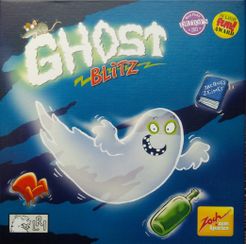
/pic5674958.jpg)
/pic1885326.jpg)

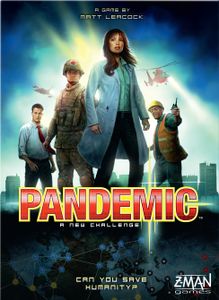
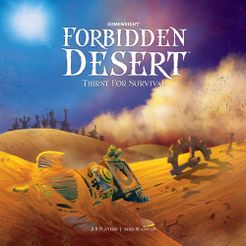
/pic3918905.png)
/pic4177924.jpg)
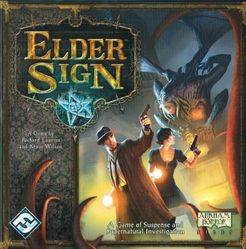
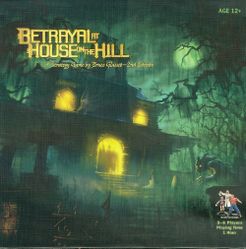
/pic79413.jpg)
/pic3761012.jpg)

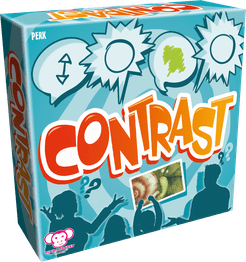

/pic5100691.jpg)
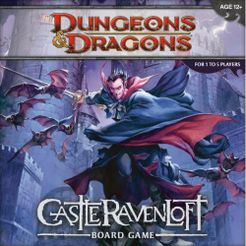
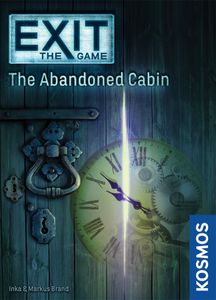


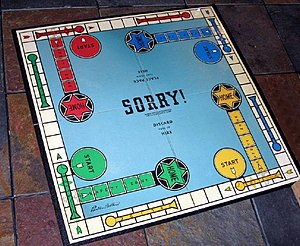

/pic227687.jpg)
/pic6940449.png)

/pic3747956.png)
/pic3283110.png)
/pic2062272.jpg)
/pic4852372.jpg)
/pic7648372.png)
/pic6137509.png)
/pic3132685.png)
/pic6398727.png)
/pic5349983.png)
/pic6929347.jpg)
/pic3525224.jpg)
/pic6973671.png)
/pic4930887.jpg)
/pic2270442.jpg)
/pic4397932.png)
:strip_icc()/pic3446255.jpg)
/pic818904.jpg)
/pic6204967.png)
/pic7107431.jpg)
/pic5974859.jpg)
/pic4781085.jpg)

/pic2439223.jpg)


/pic158548.jpg)
/pic860217.jpg)
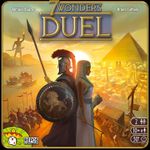
/pic2503200.png)
/pic4336469.png)
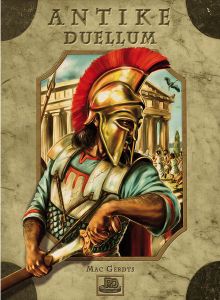
/pic6624445.png)
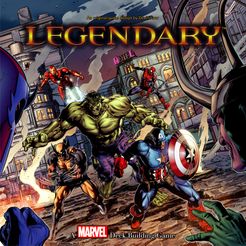
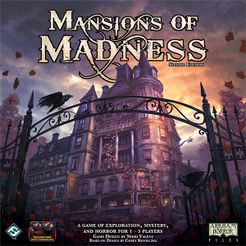
/pic1077906.jpg)

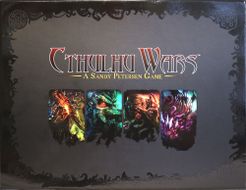
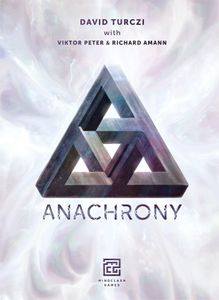
/pic1638795.jpg)
/pic2355823.jpg)
/pic6228507.jpg)
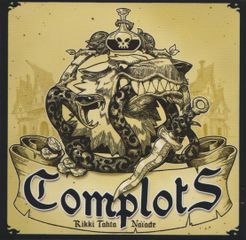

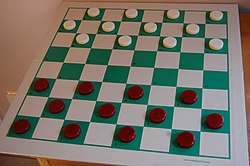

/pic2337577.jpg)
/pic2691976.png)
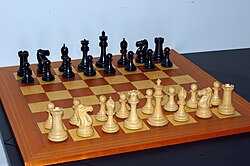
/pic5581457.jpg)

/pic4604439.jpg)
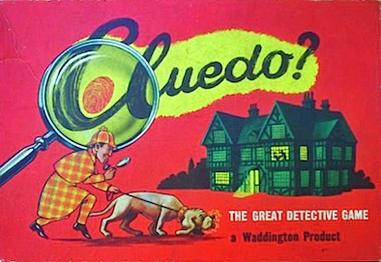
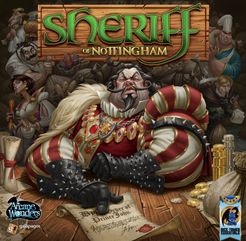


/pic4960193.jpg)
/pic4462987.png)
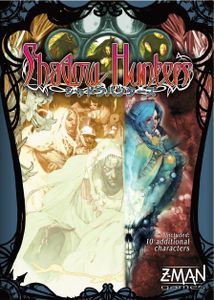
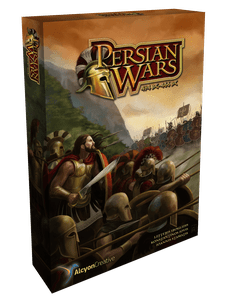
/pic4356580.jpg)

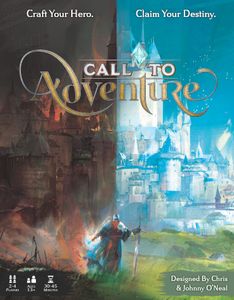
/pic5902073.png)
/pic244662.jpg)
/pic1632539.jpg)
/pic24006.jpg)
/pic5617866.jpg)

/pic831744.jpg)
/pic4071903.jpg)
/pic5283740.jpg)

/pic3239104.jpg)
/pic5687013.jpg)
/pic2624698.jpg)
/pic6293412.jpg)
/pic3511783.png)
/pic3880340.jpg)

/pic5666597.jpg)
/pic5375625.png)
/pic4503733.png)
/pic3530661.jpg)
/pic4887376.jpg)
/pic2663291.jpg)
/pic4924232.jpg)
/pic1176894.jpg)
/pic3184103.jpg)
/pic3469216.jpg)
/pic5235277.jpg)
/pic1083380.jpg)
/pic3738560.jpg)
/pic4837710.png)
/pic1750585.jpg)
/pic2225968.png)
/pic406760.jpg)
/pic265524.jpg)
/pic3490053.jpg)
/pic6091101.jpg)

/pic6966955.jpg)
/pic1525635.png)
/pic5722429.png)
/pic4084792.jpg)

/pic7508098.jpg)
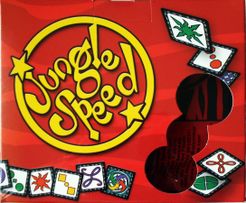
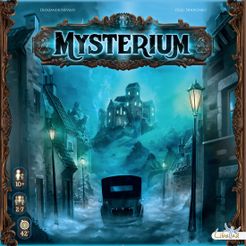
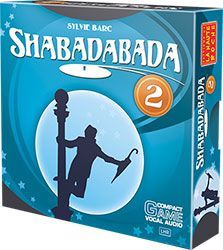
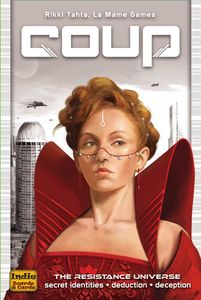
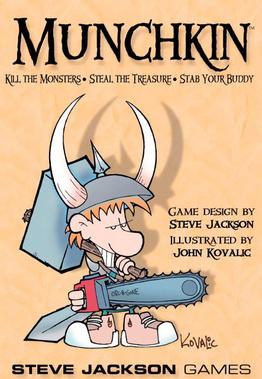
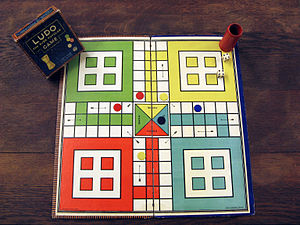

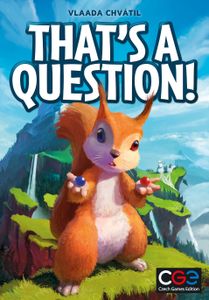
/pic1809823.jpg)

/pic2419375.jpg)
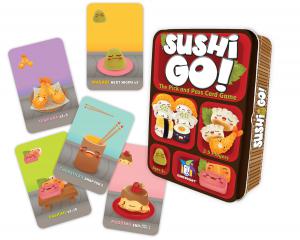
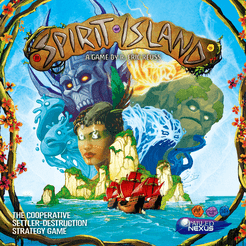
/pic3231155.png)
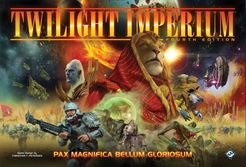
/pic6411897.png)
/pic4530974.jpg)
/pic4357658.jpg)
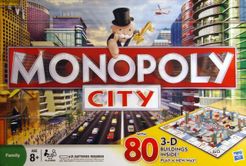
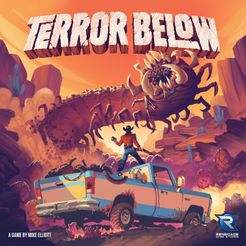
/pic2649434.png)


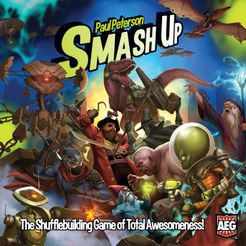
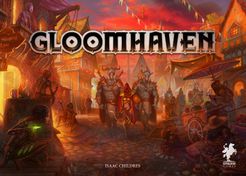
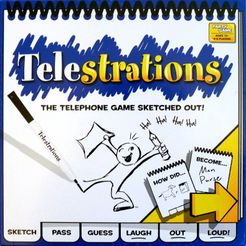
/pic4254509.jpg)
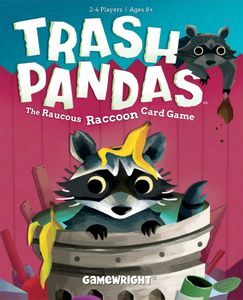
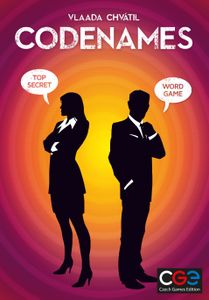
/pic6500949.jpg)

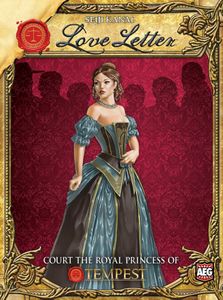
/pic3607816.jpg)
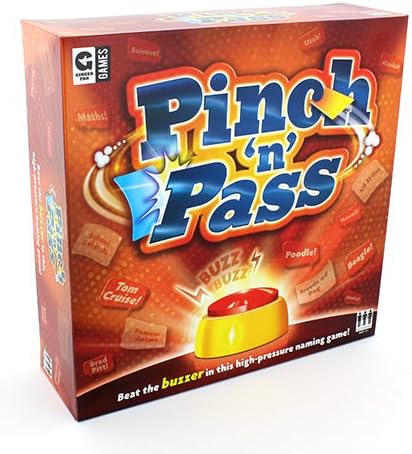
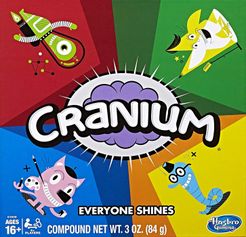
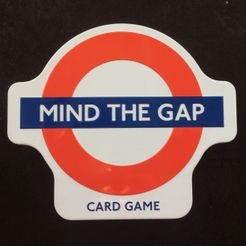
/pic2420310.jpg)
/pic3979766.png)
/pic6289695.jpg)
/pic147435.jpg)


/pic404651.jpg)
/pic1790789.jpg)
/pic4415146.jpg)
/pic4917407.jpg)
/pic428828.jpg)
/pic3941376.png)

/pic4481765.png)
/pic1293566.jpg)

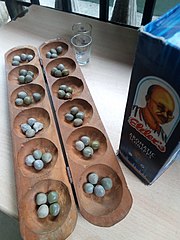
/pic6974400.jpg)
/pic3209553.jpg)
/pic3759421.jpg)
/pic5845169.jpg)
/pic3719954.jpg)
/pic1638334.jpg)
/pic4821613.png)
/pic163749.jpg)
/pic2558555.jpg)
/pic5137279.jpg)
/pic7009391.jpg)
/pic7617053.jpg)

/pic1703109.jpg)
/pic4888035.jpg)
/pic1634333.jpg)
/pic1950463.jpg)
/pic6346032.png)
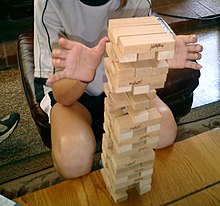
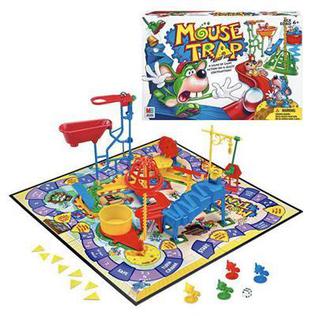
/pic1726346.jpg)
/pic353047.jpg)
/pic6742326.png)
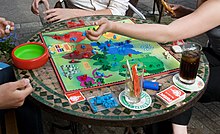
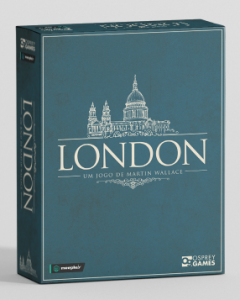
/pic4309147.jpg)
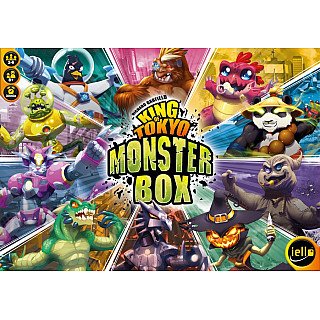
/pic7464921.png)
/pic7754663.jpg)
/pic6153324.jpg)
/pic7657810.jpg)
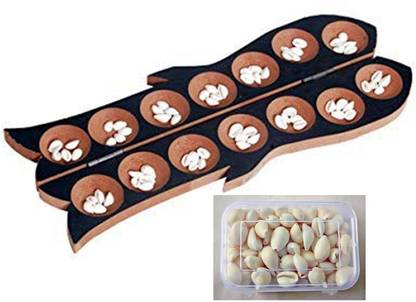
/pic6177719.jpg)

/pic6094080.png)
/pic3477004.jpg)
/pic7069377.jpg)
/pic3364832.jpg)
/pic6230640.jpg)
/pic2055255.jpg)
/pic175966.jpg)
/pic4334067.jpg)
/pic774410.jpg)
/pic7376874.jpg)
/pic1824151.jpg)
/pic394356.jpg)
/pic4892981.jpg)
/pic2871265.jpg)
/pic384313.jpg)
:strip_icc()/pic6289957.png)
/pic544780.jpg)
/pic6097488.jpg)
/pic6039256.jpg)
/pic4490515.jpg)
/pic7714854.jpg)
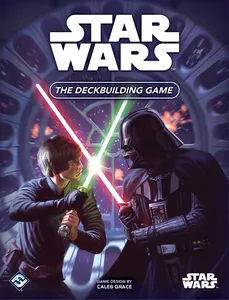
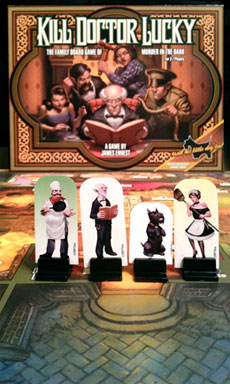
/pic3949242.png)
/pic2278942.jpg)